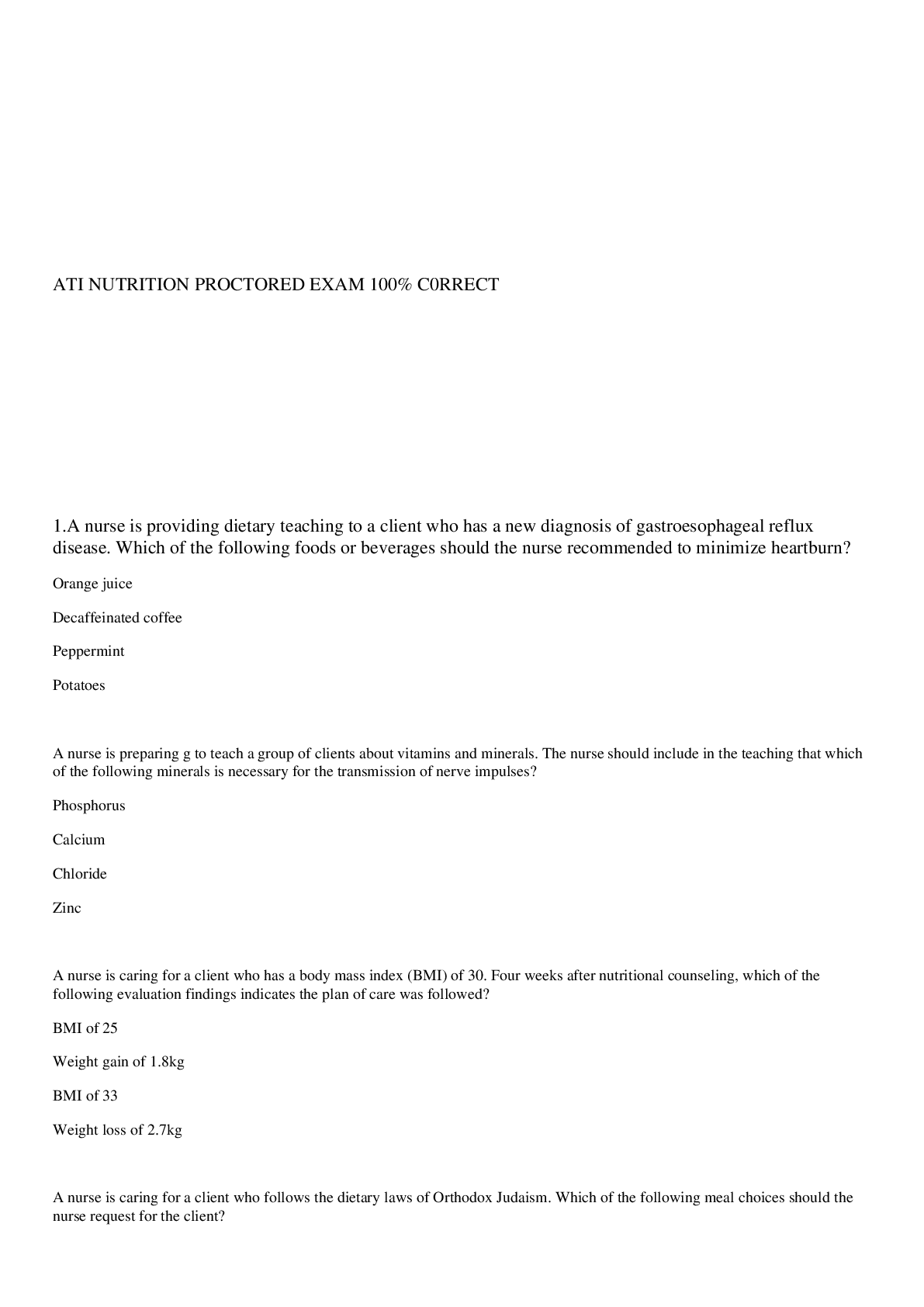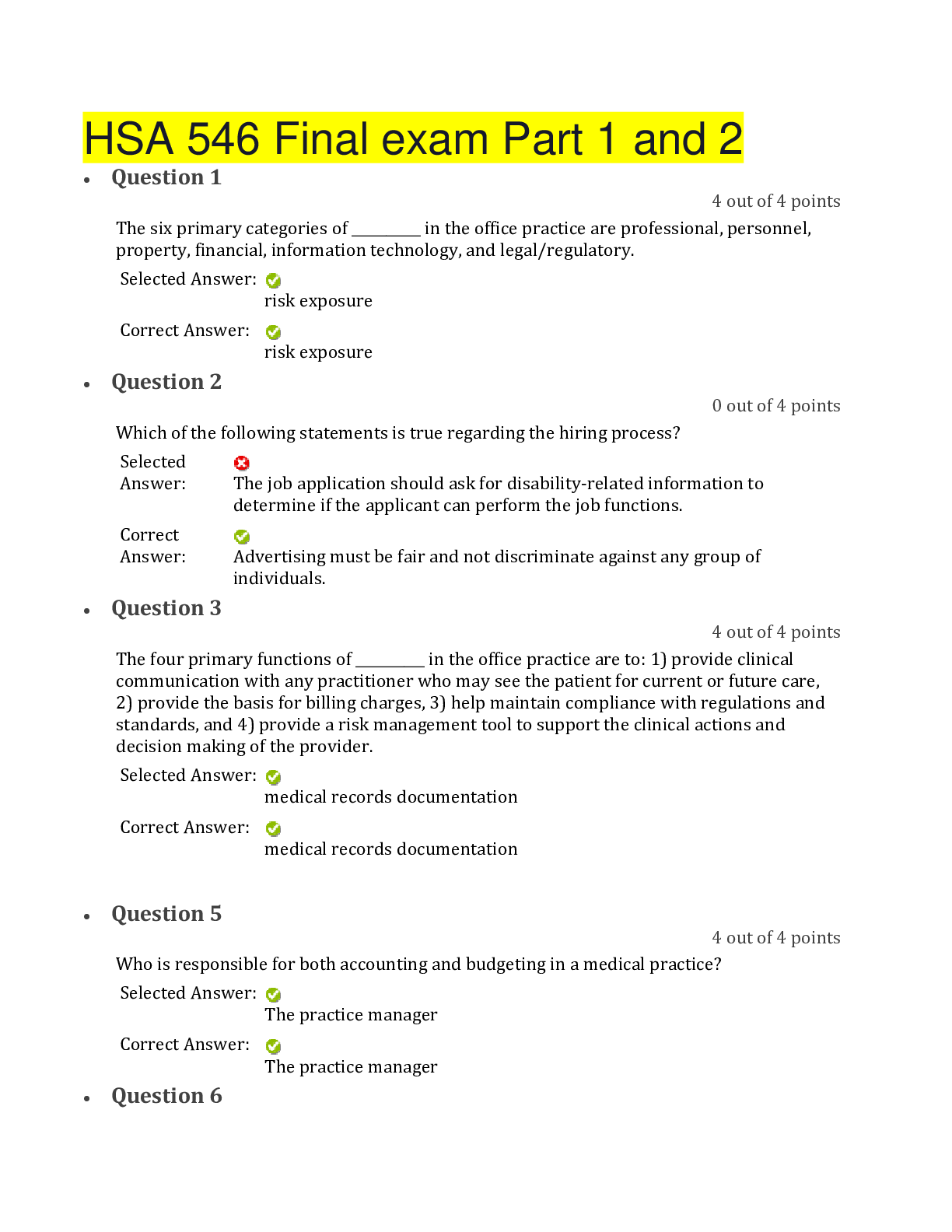*NURSING > EXAM > NR 508 / NR508 Advanced Pharmacology Week 6 Quiz Bank | ALL Chapters | Questions and Answers | Lates (All)
NR 508 / NR508 Advanced Pharmacology Week 6 Quiz Bank | ALL Chapters | Questions and Answers | Latest 2020 / 2021 | Chamberlain College
Document Content and Description Below
NR 508 / NR508 Advanced Pharmacology Week 6 Quiz Bank | ALL Chapters | Questions and Answers | Latest 2020 / 2021 | Chamberlain College 1. Drugs Used in Treating Inflammatory Processes 1. P... atients whose total dose of prednisone will exceed 1 gram will most likely need a second prescription for: 1. Metformin, a biguanide to prevent diabetes 2. Omeprazole, a proton pump inhibitor to prevent peptic ulcer disease 3. Naproxen, an NSAID to treat joint pain 4. Furosemide, a diuretic to treat fluid retention 2. Daniel has been on 60 mg of prednisone for 10 days to treat a severe asthma exacerbation. It is time to discontinue the prednisone. How is prednisone discontinued? 1. Patients with asthma are transitioned directly off the prednisone onto inhaled corticosteroids. 2. Prednisone can be abruptly discontinued with no adverse effects. 3. Develop a tapering schedule to slowly wean Daniel off the prednisone. 4. Substitute the prednisone with another anti-inflammatory such as ibuprofen. 3. Patients with rheumatoid arthritis who are on chronic low-dose prednisone will need co-treatment with which medications to prevent further adverse effects? 1. A bisphosphonate 2. Calcium supplementation 3. Vitamin D 4. All of the above 4. Patients who are on or who will be starting chronic corticosteroid therapy need monitoring of: 1. Serum glucose 2. Stool culture 3. Folate levels 4. Vitamin B12 5. Patients who are on chronic long-term corticosteroid therapy need education regarding: 1. Receiving all vaccinations, especially the live flu vaccine 2. Reporting black tarry stools or abdominal pain 3. Eating a high carbohydrate diet with plenty of fluids 4. Small amounts of alcohol are generally tolerated. 6. Henry presents to clinic with a significantly swollen, painful great toe and is diagnosed with gout. Of the following, which would be the best treatment for Henry? 1. High-dose colchicine 2. Low-dose colchicine 3. High-dose aspirin 4. Acetaminophen with codeine 7. Patient education when prescribing colchicine includes: 1. Colchicine may be constipating. 2. Colchicine always causes some degree of diarrhea. 3. Mild muscle weakness is normal. 4. Moderate amounts of alcohol are safe with colchicine. 8. Larry is taking allopurinol to prevent gout. Monitoring of a patient who is taking allopurinol includes: 1. Complete blood count 2. Blood glucose 3. C-reactive protein 4. BUN, creatinine, and creatinine clearance 9. Phil is starting treatment with febuxostat (Uloric). Education of patients starting febuxostat includes: 1. Gout may worsen with therapy. 2. Febuxostat may cause severe diarrhea. 3. He should consume a high-calcium diet. 4. He will need frequent CBC monitoring. 10. Sallie has been taking 10 mg per day of prednisone for the past 6 months. She should be assessed for: 1. Gout 2. Iron deficiency anemia 3. Osteoporosis 4. Renal dysfunction 11. All nonsteroidal anti-inflammatory drugs (NSAIDS) have an FDA Black Box Warning regarding: 1. Potential for causing life-threatening GI bleeds 2. Increased risk of developing systemic arthritis with prolonged use 3. Risk of life-threatening rashes, including Stevens-Johnson 4. Potential for transient changes in serum glucose 12. Jamie has fractured his ankle and has received a prescription for acetaminophen and hydrocodone (Vicodin). Education when prescribing Vicodin includes: 1. It is okay to double the dose of Vicodin if the pain is severe. 2. Vicodin is not habit-forming. 3. He should not take any other acetaminophen-containing medications. 4. Vicodin may cause diarrhea; increase his fluid intake. 13. When prescribing NSAIDS, a complete drug history should be conducted as NSAIDs interact with these drugs: 1. Omeprazole, a proton pump inhibitor 2. Combined oral contraceptives 3. Diphenhydramine, an antihistamine 4. Warfarin, an anticoagulant 14. Josefina is a 2-year-old child with acute otitis media and an upper respiratory infection. Along with an antibiotic she receives a recommendation to treat the ear pain with ibuprofen. What education would her parent need regarding ibuprofen? 1. They can cut an adult ibuprofen tablet in half to give Josefina. 2. The ibuprofen dose can be doubled for severe pain. 3. Josefina needs to be well-hydrated while taking ibuprofen. 4. Ibuprofen is completely safe in children with no known adverse effects. [Show More]
Last updated: 1 month ago
Preview 1 out of 10 pages
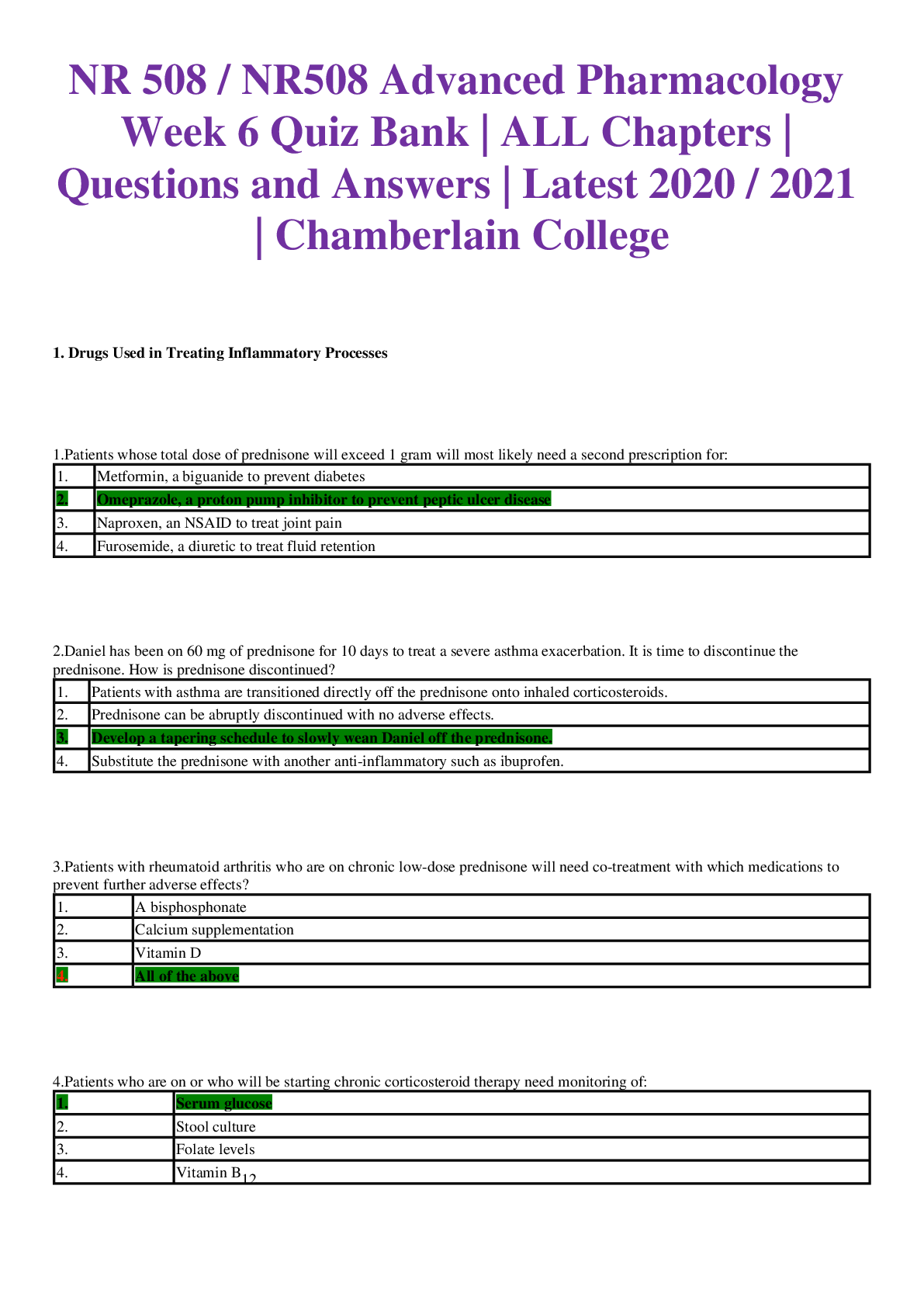
Reviews( 0 )
Document information
Connected school, study & course
About the document
Uploaded On
Dec 12, 2020
Number of pages
10
Written in
Additional information
This document has been written for:
Uploaded
Dec 12, 2020
Downloads
0
Views
59

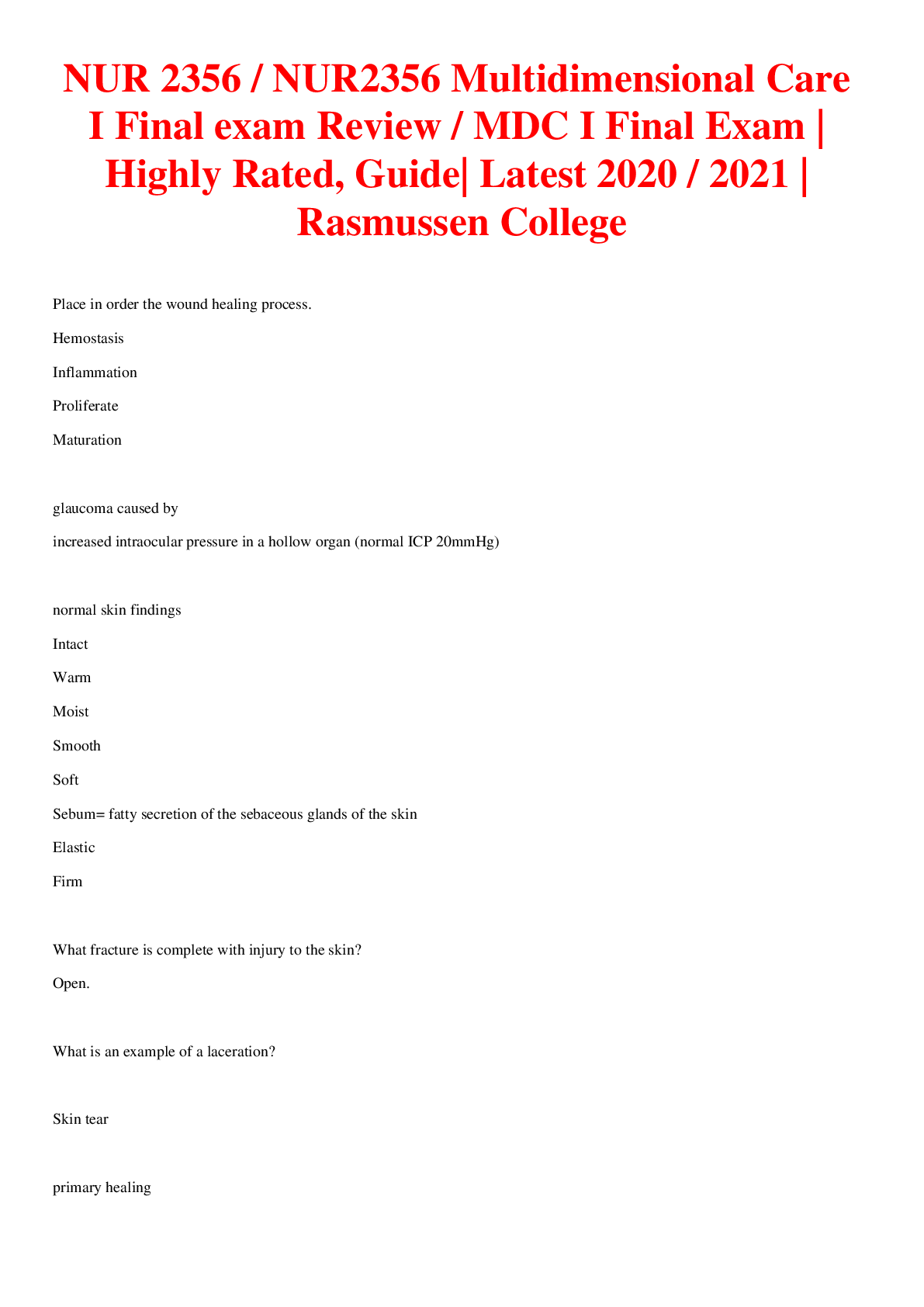
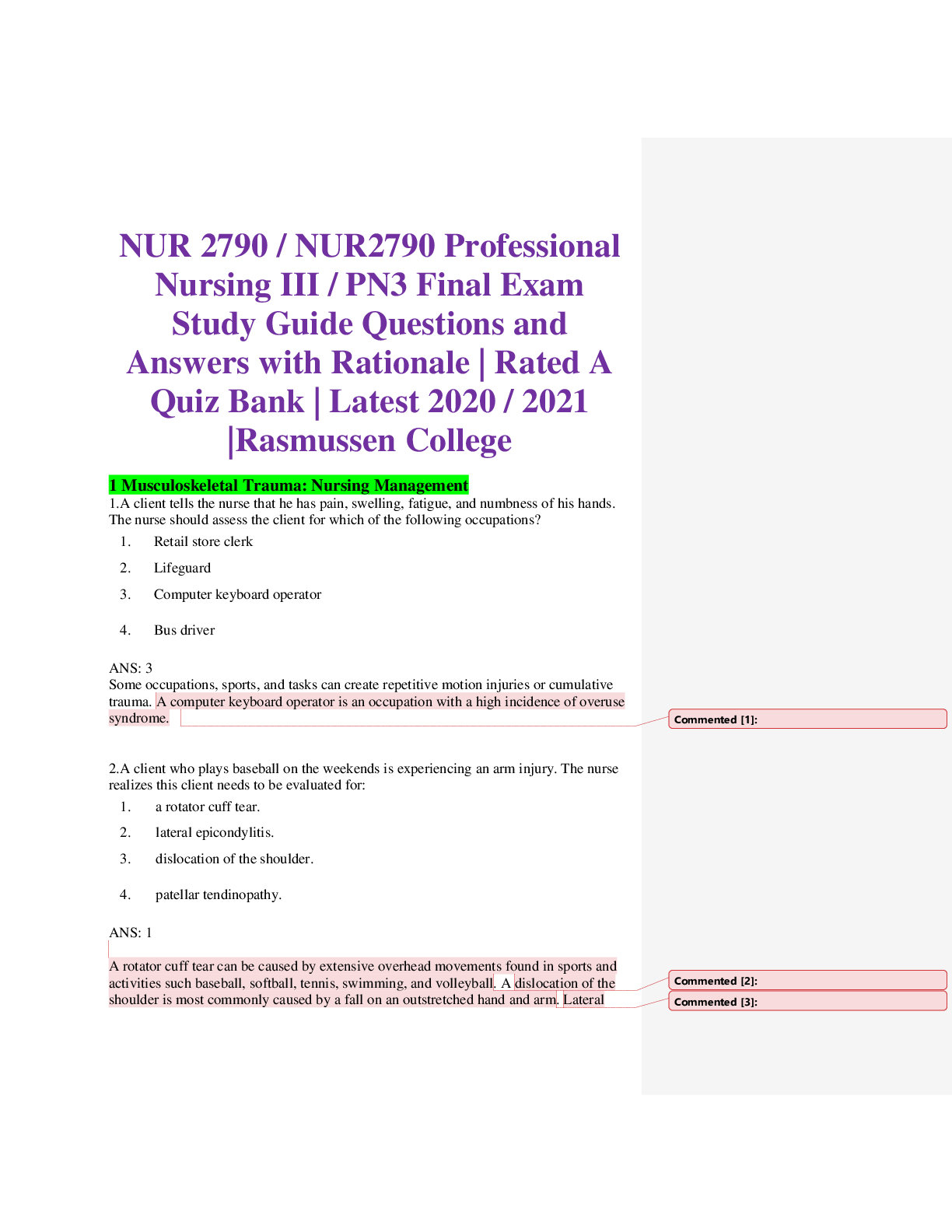
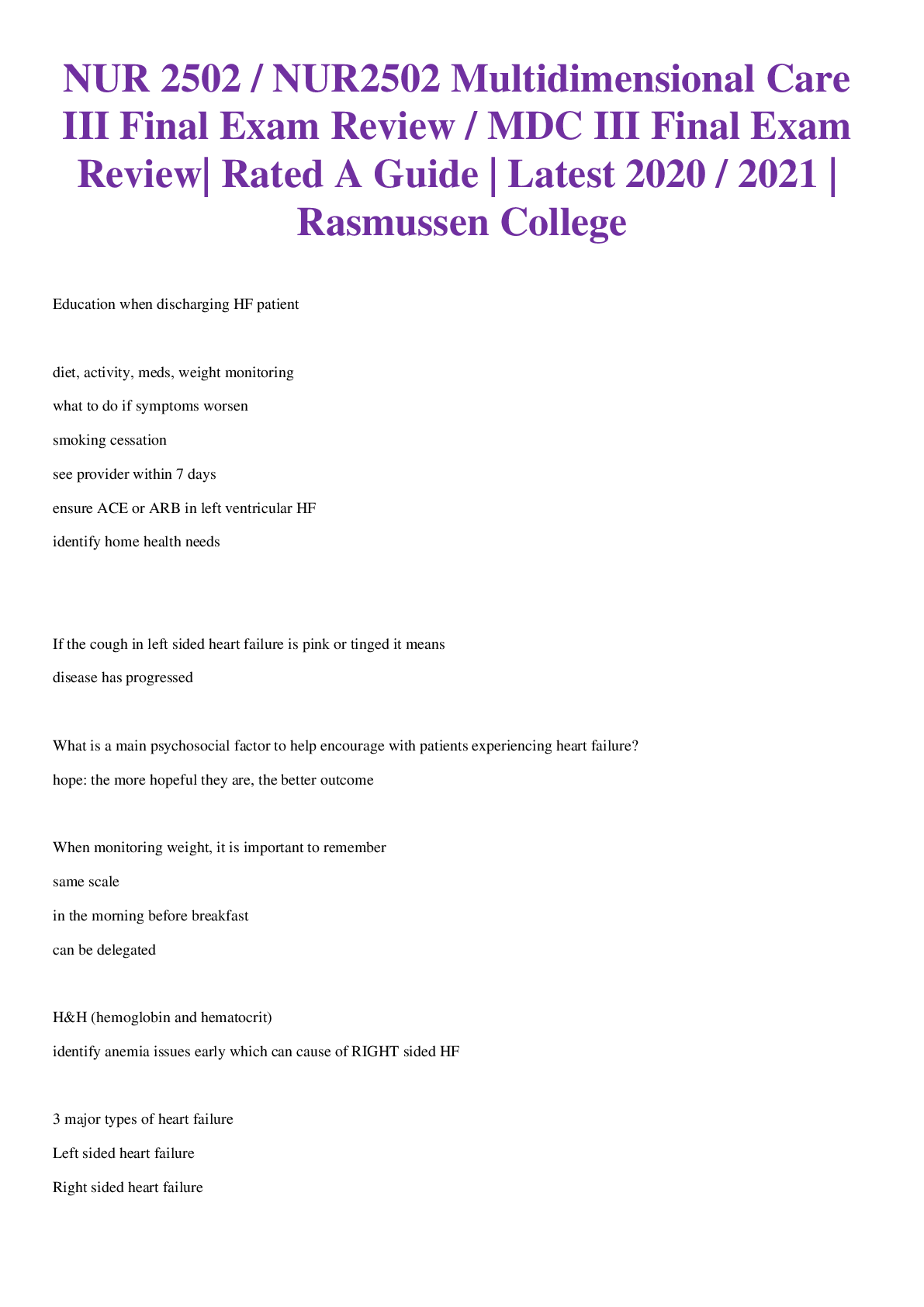
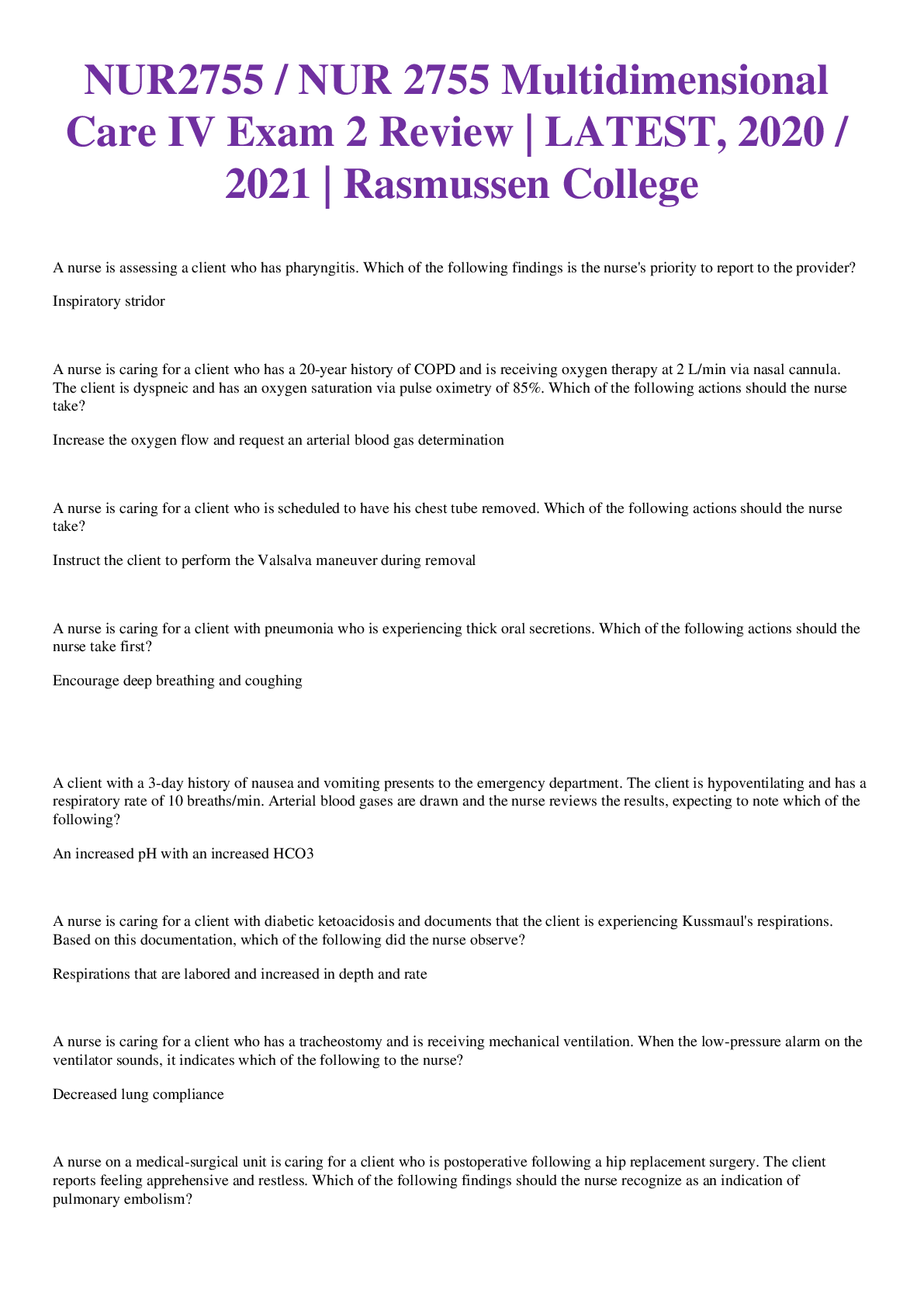
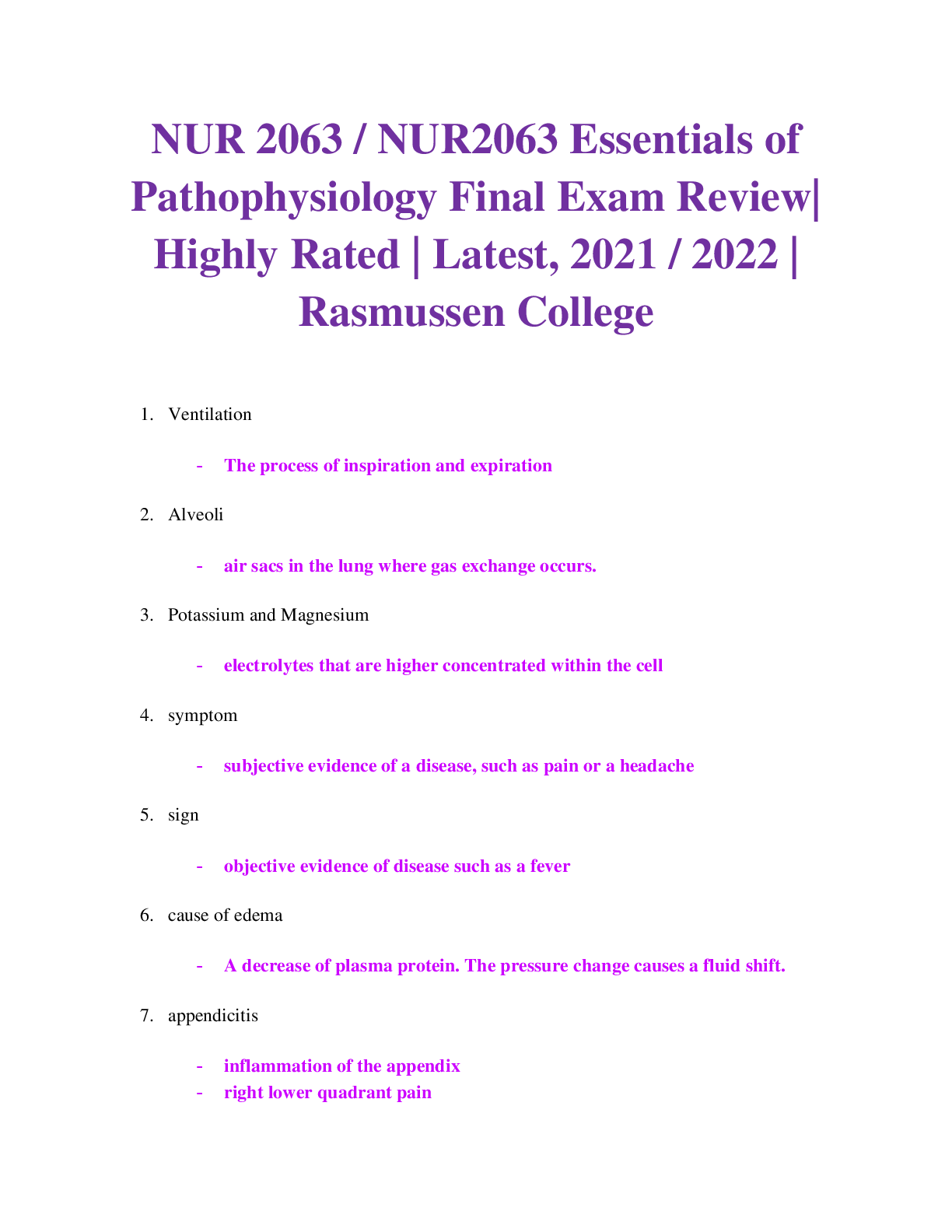
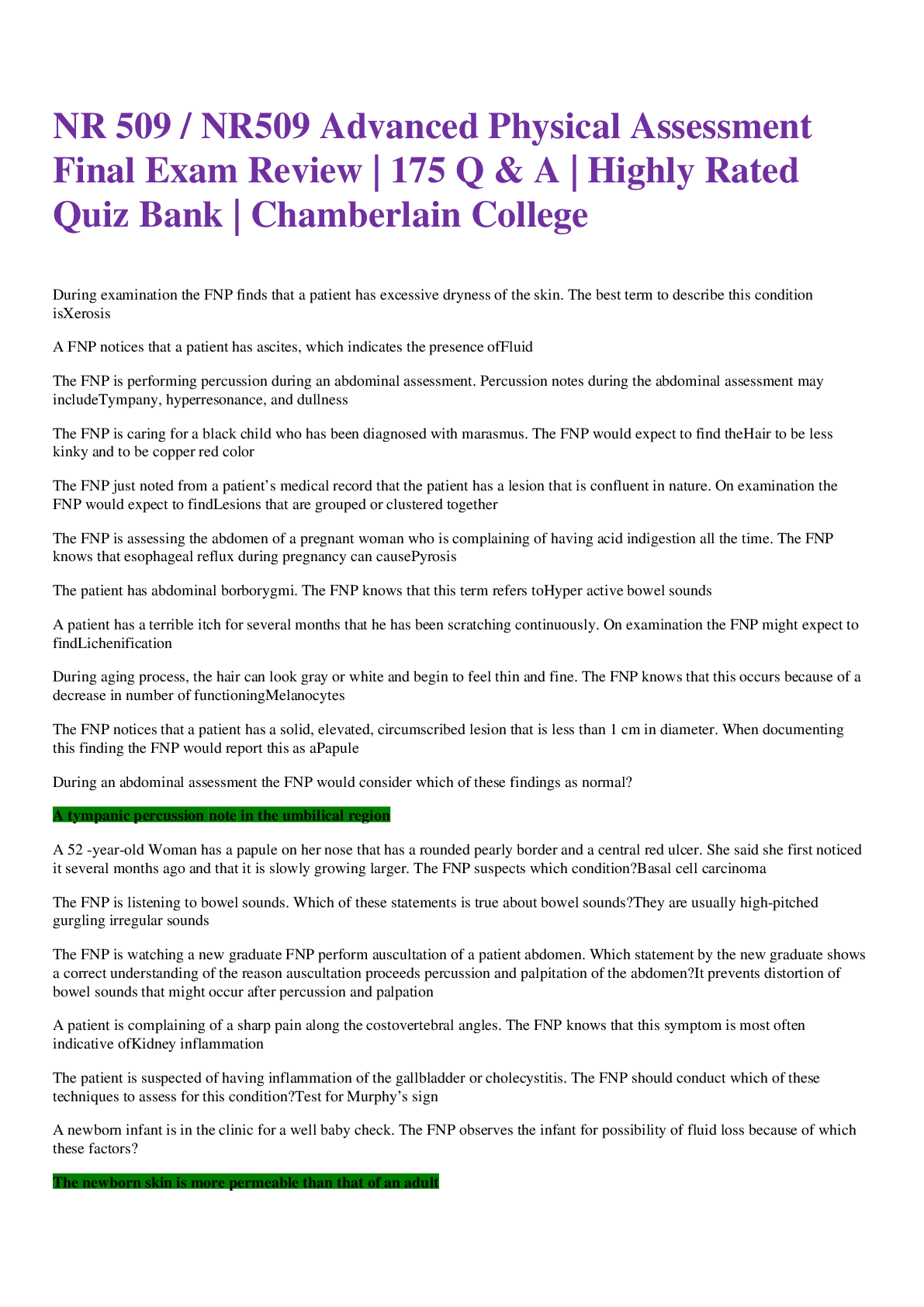
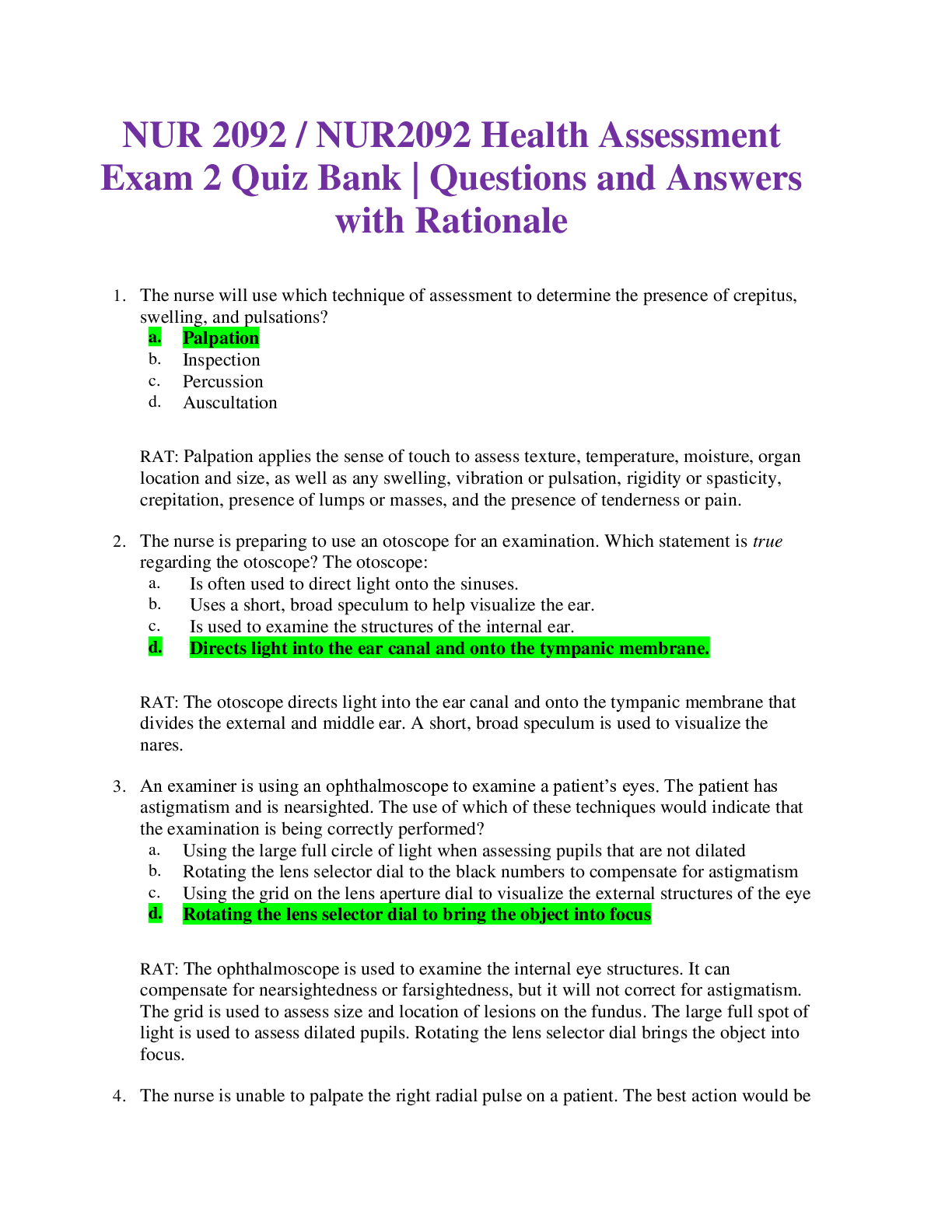
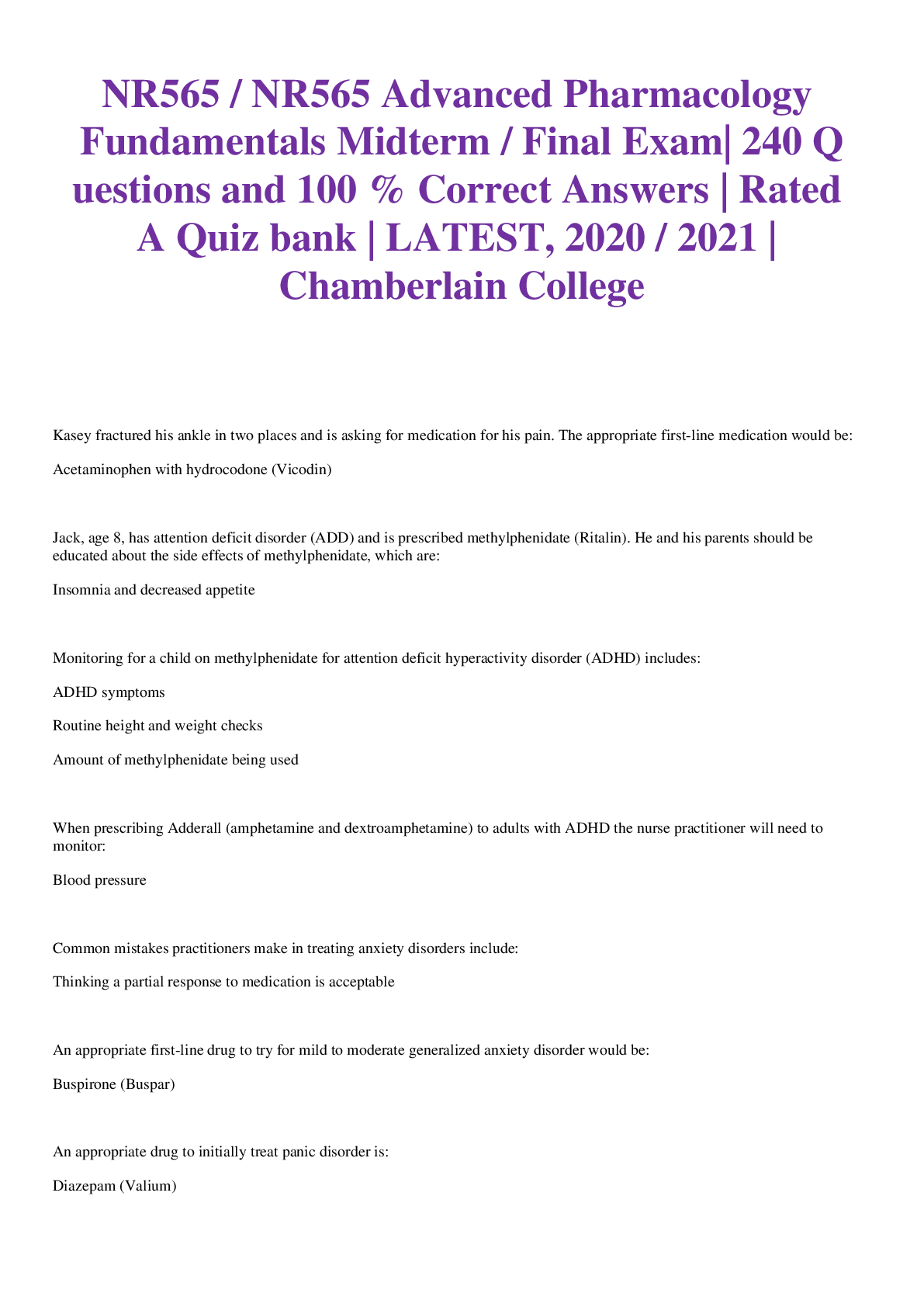
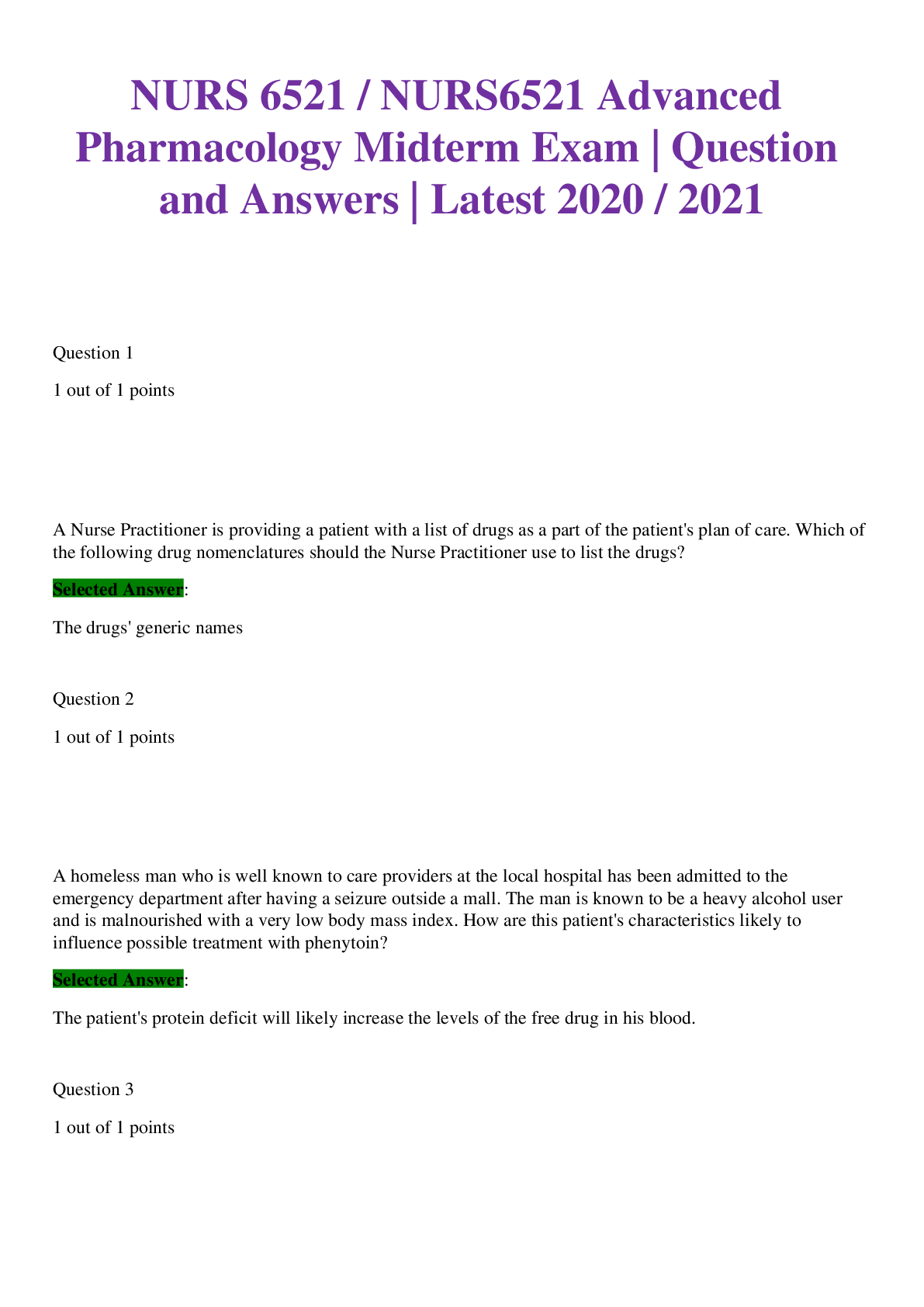
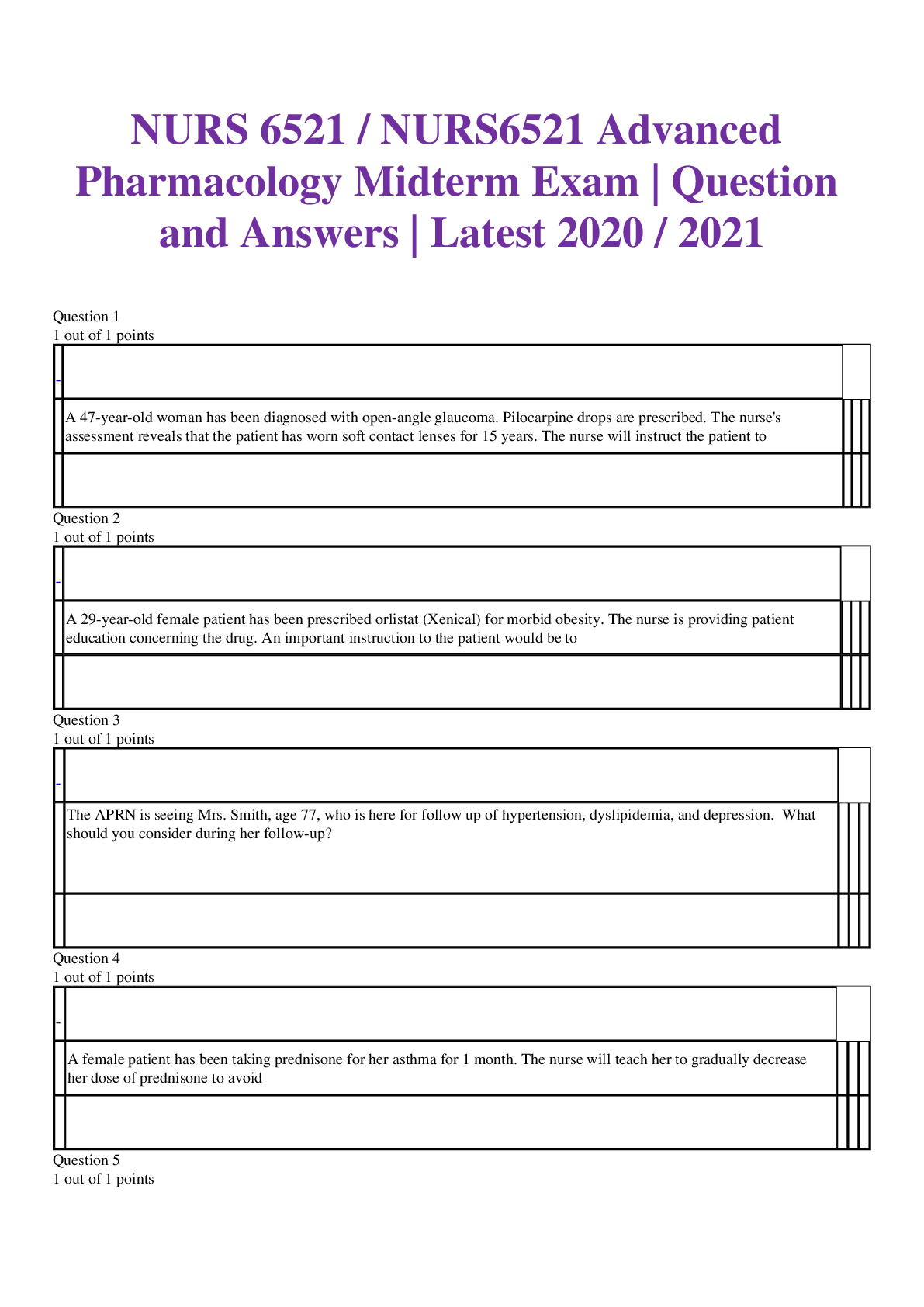
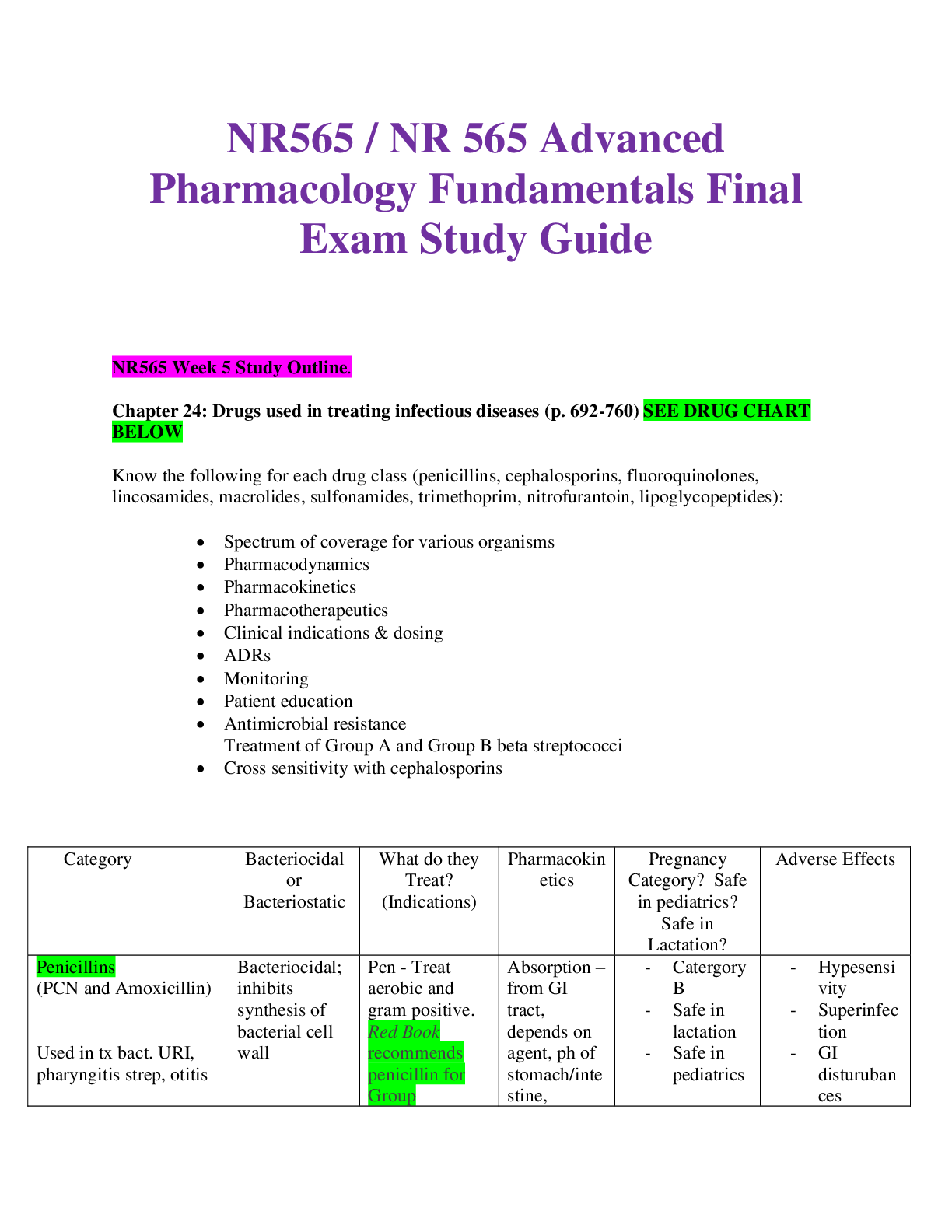
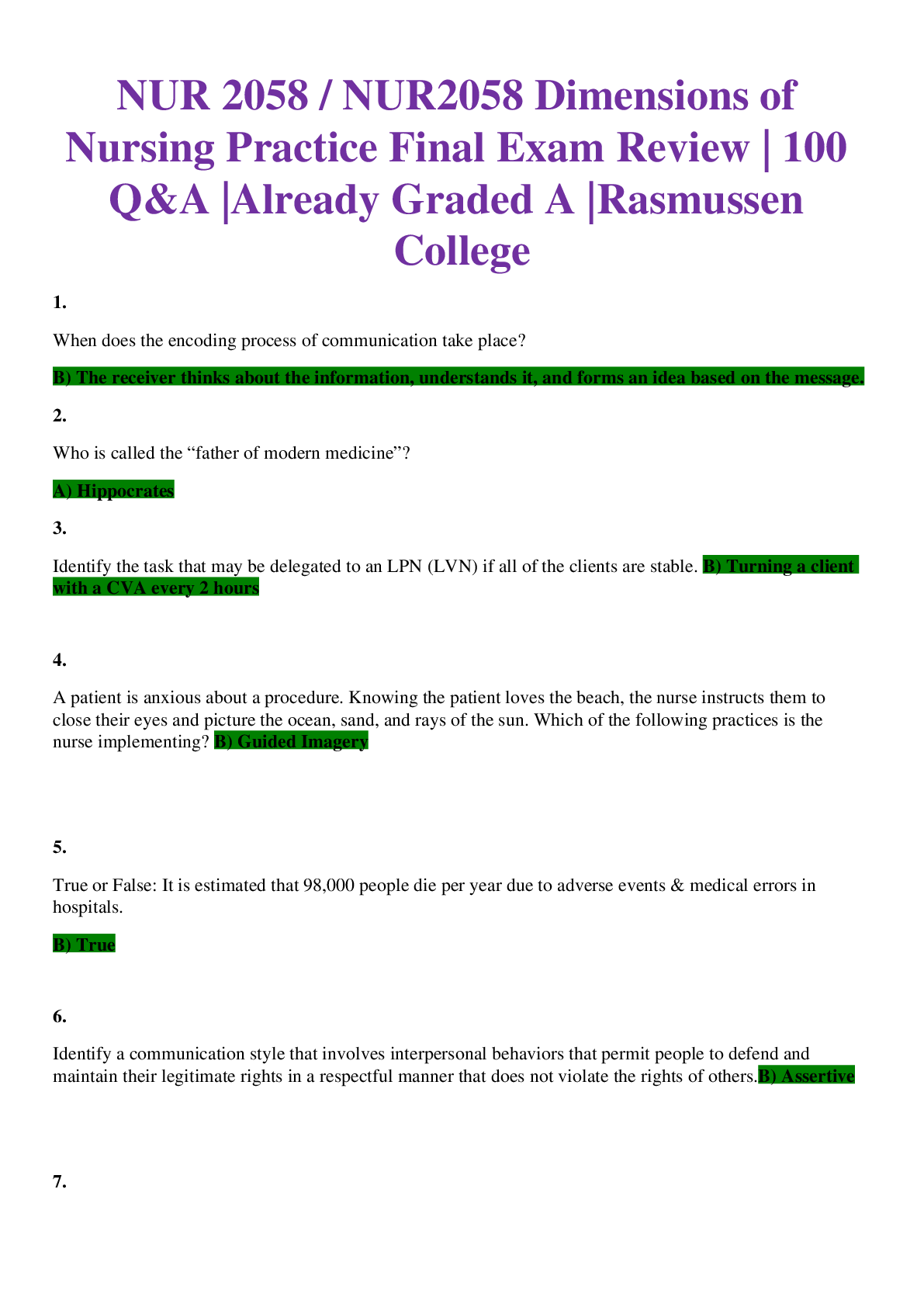
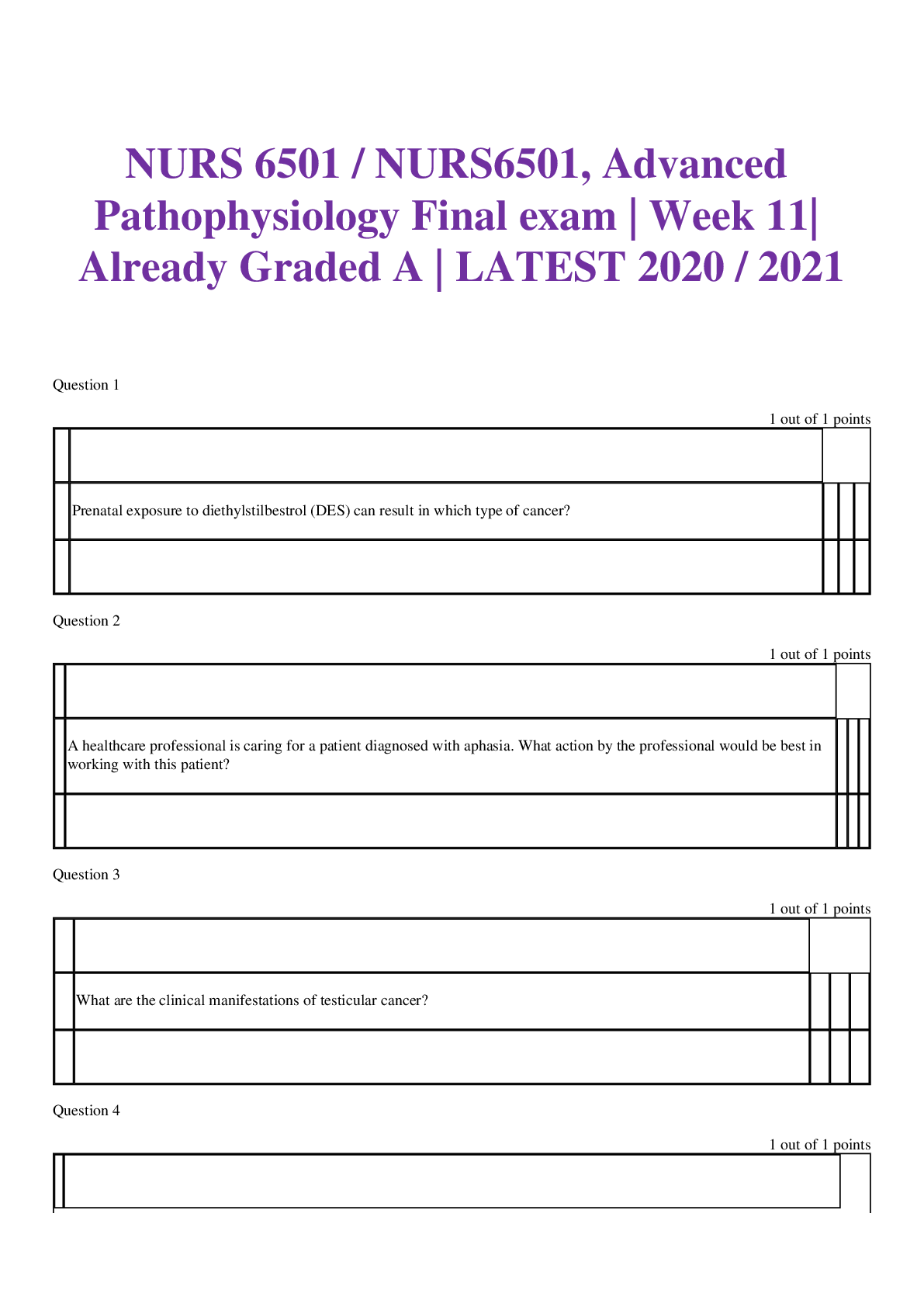
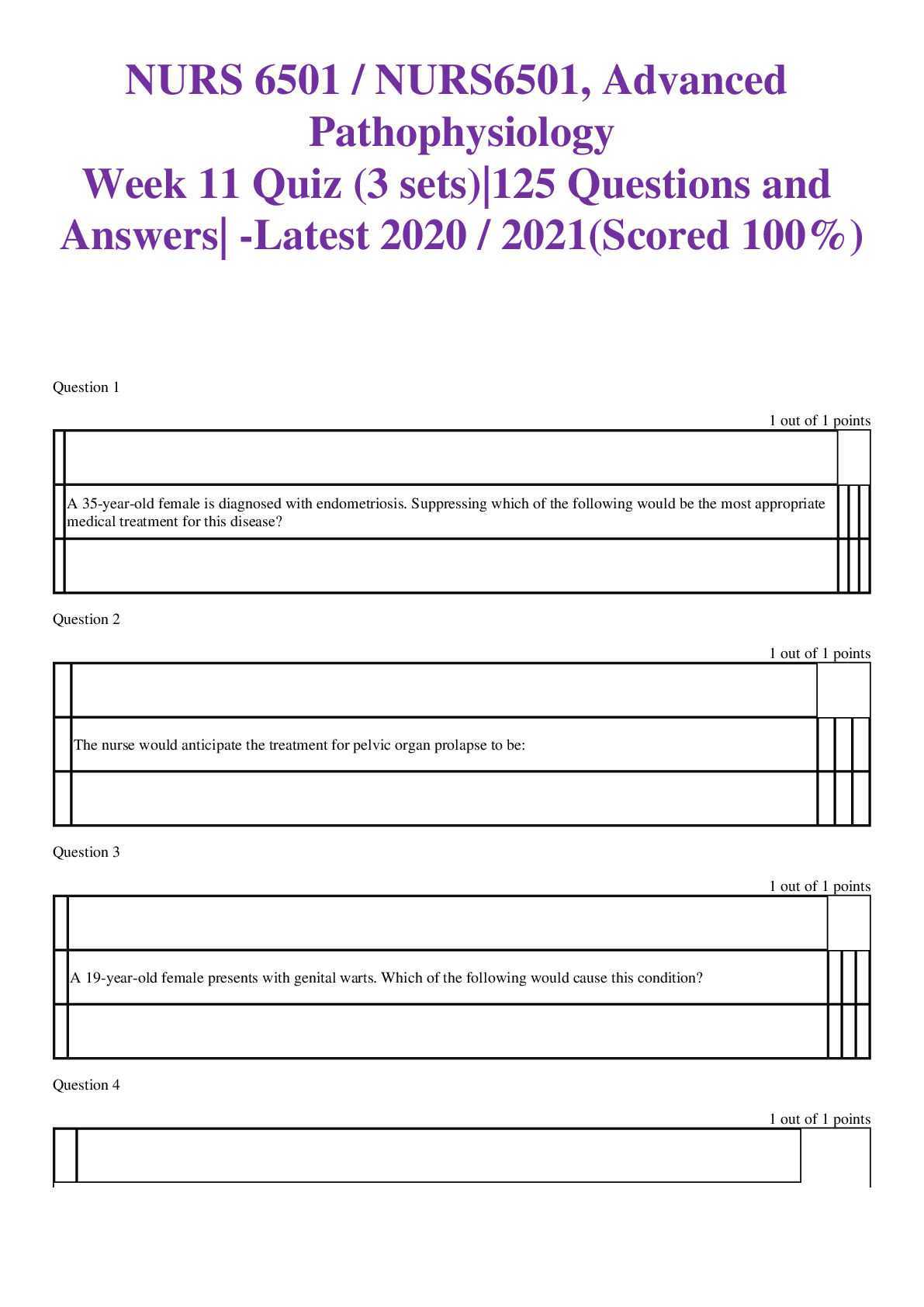

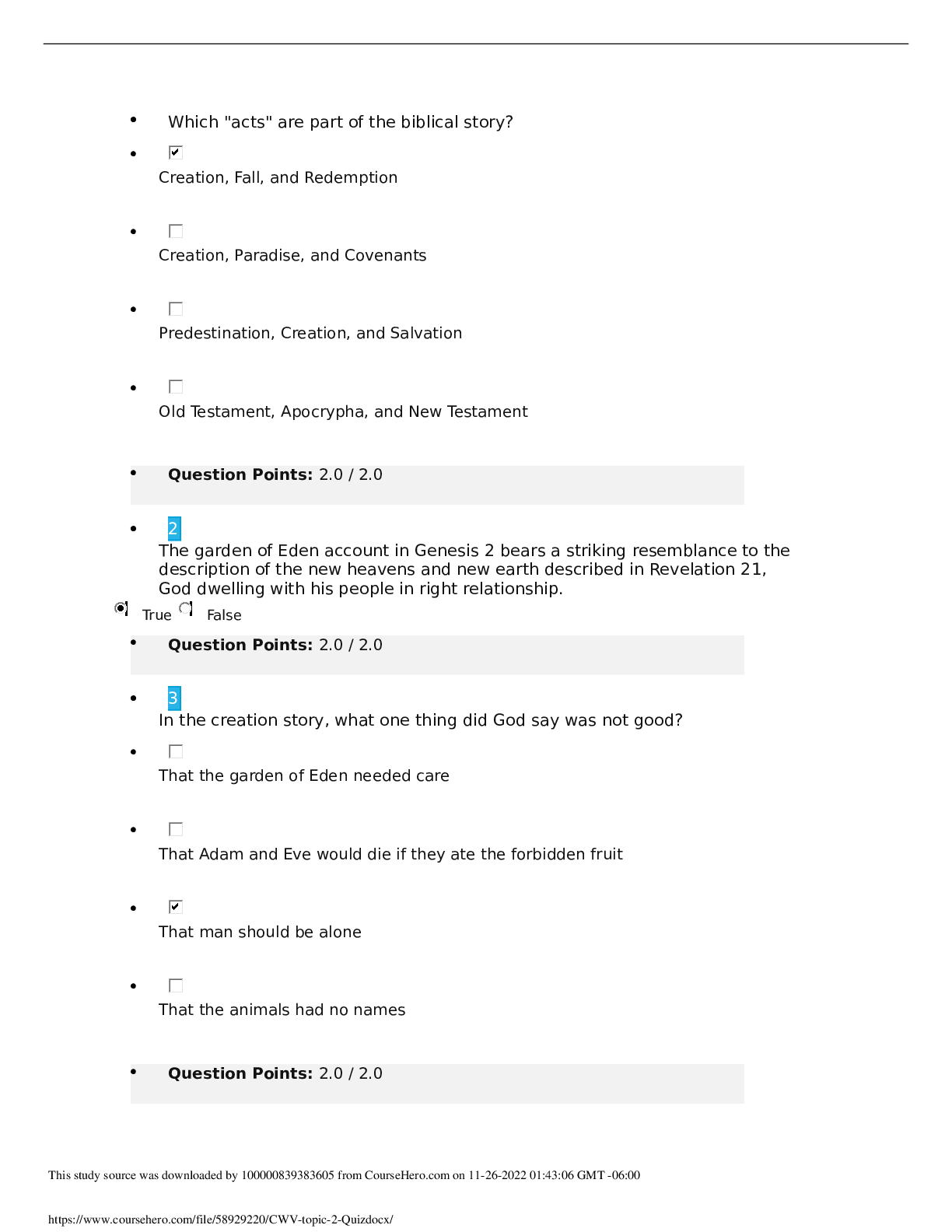
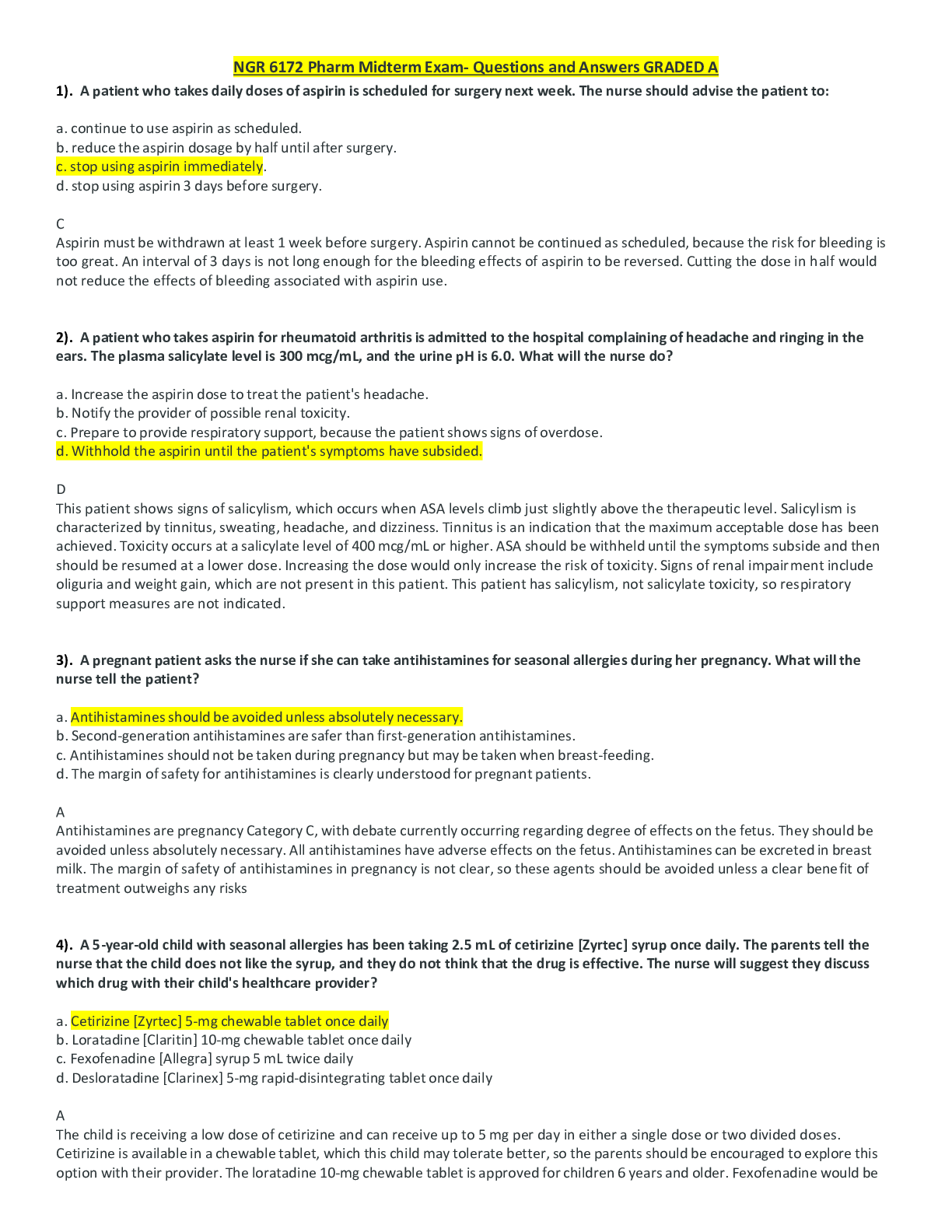
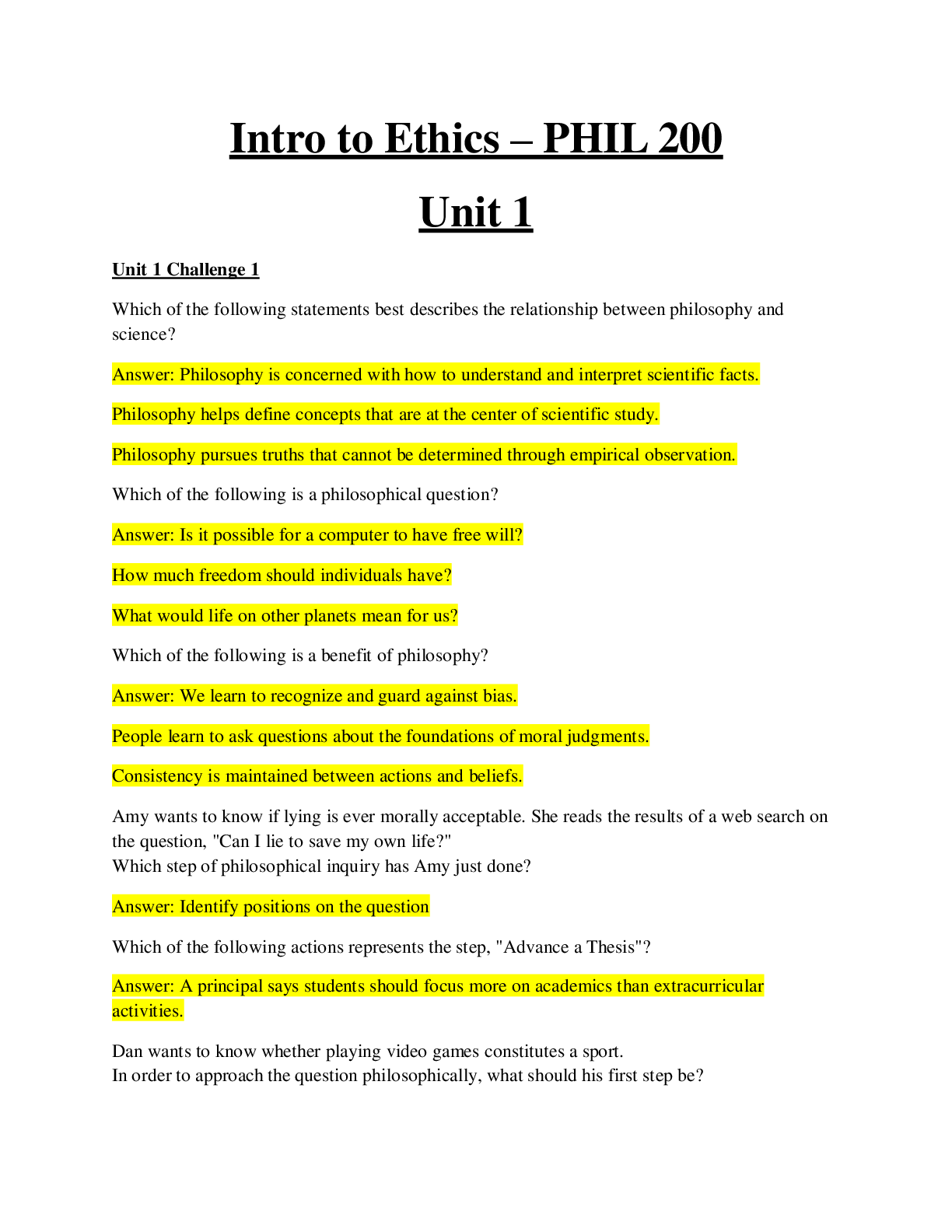

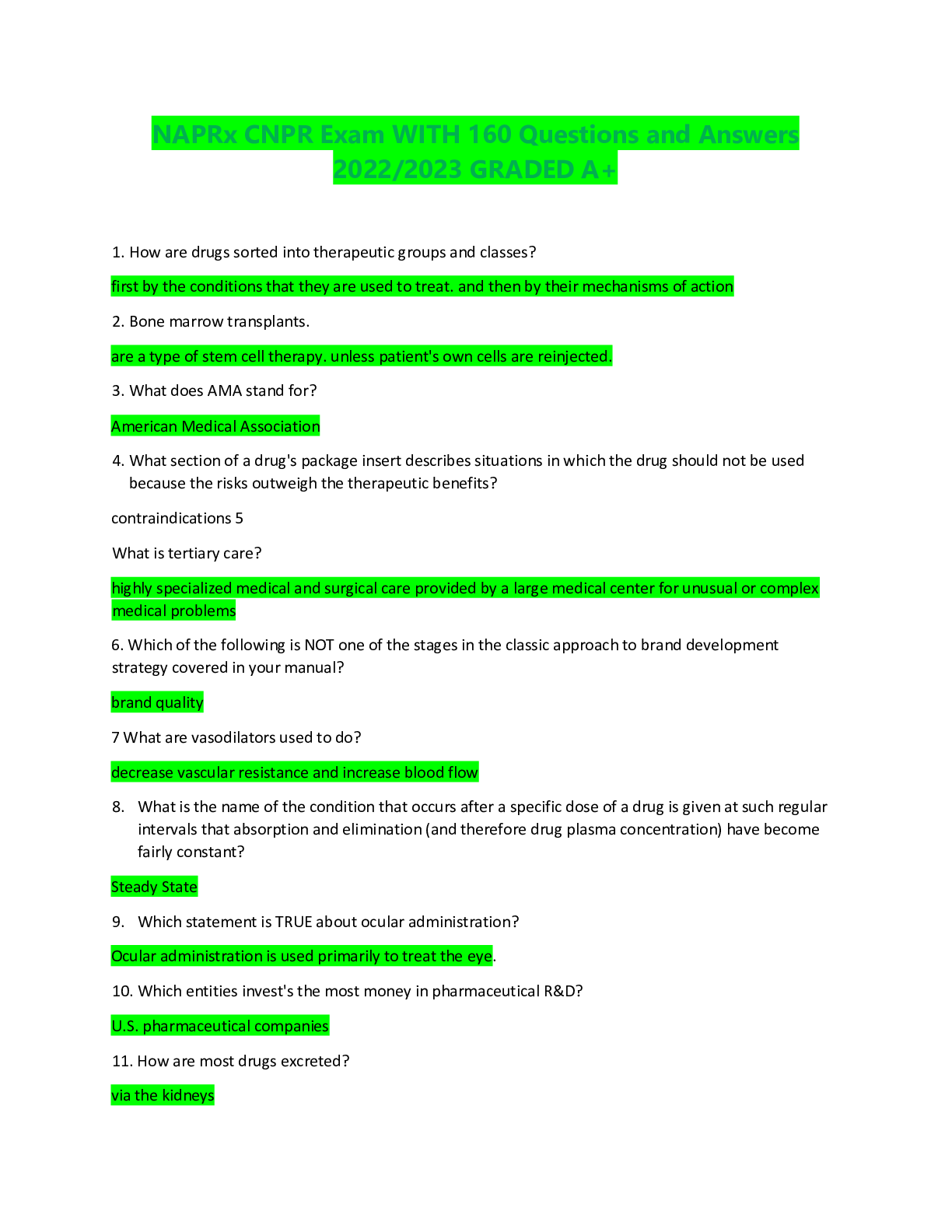
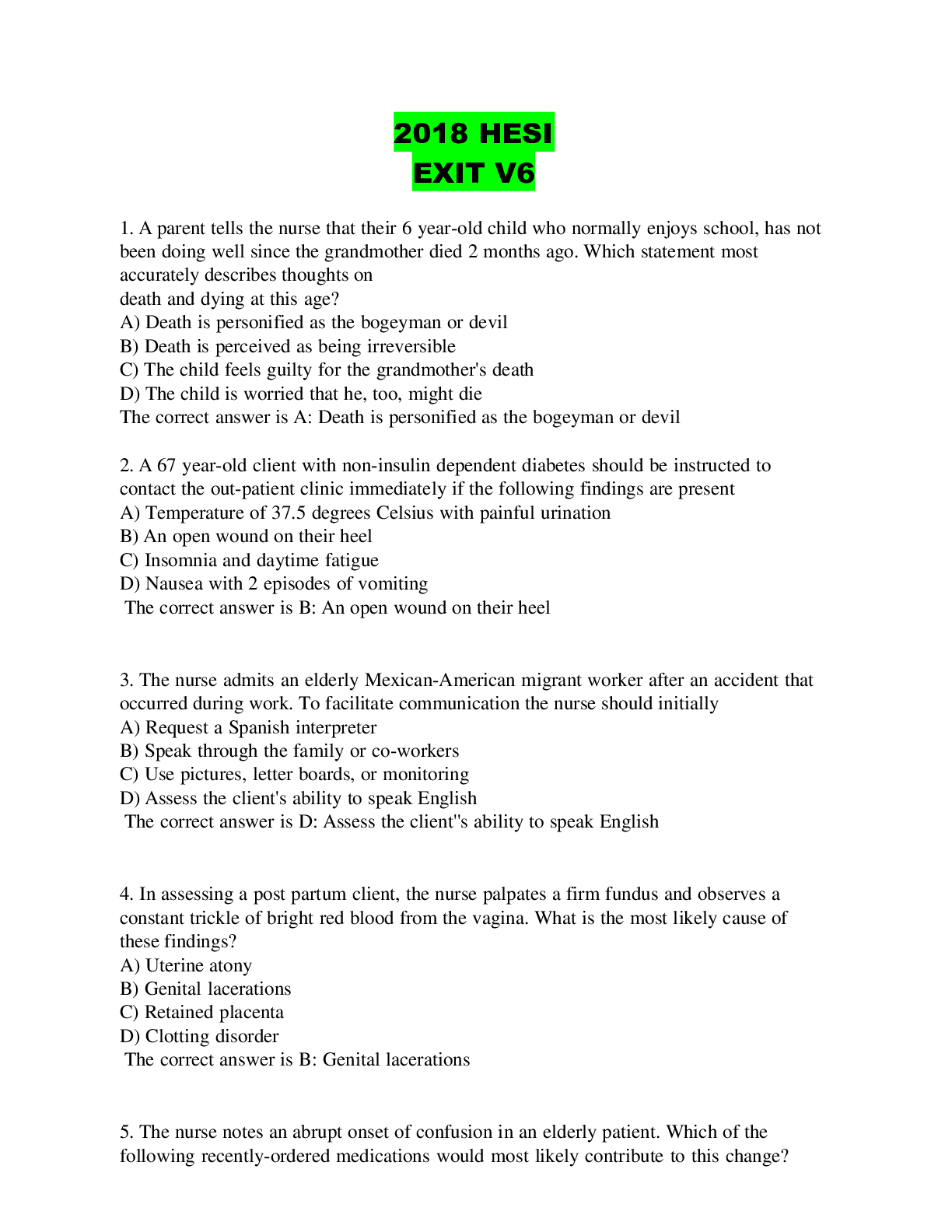
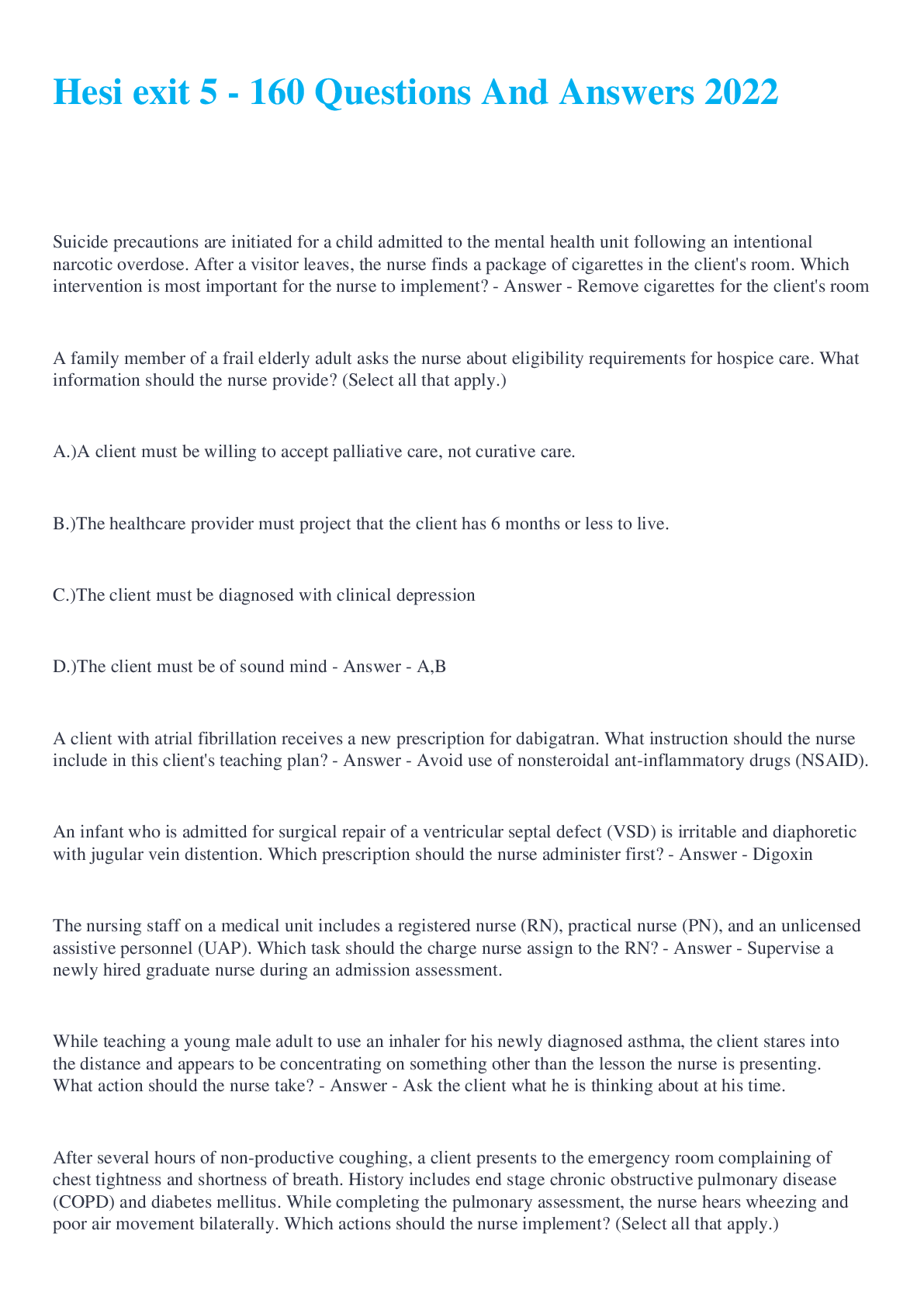
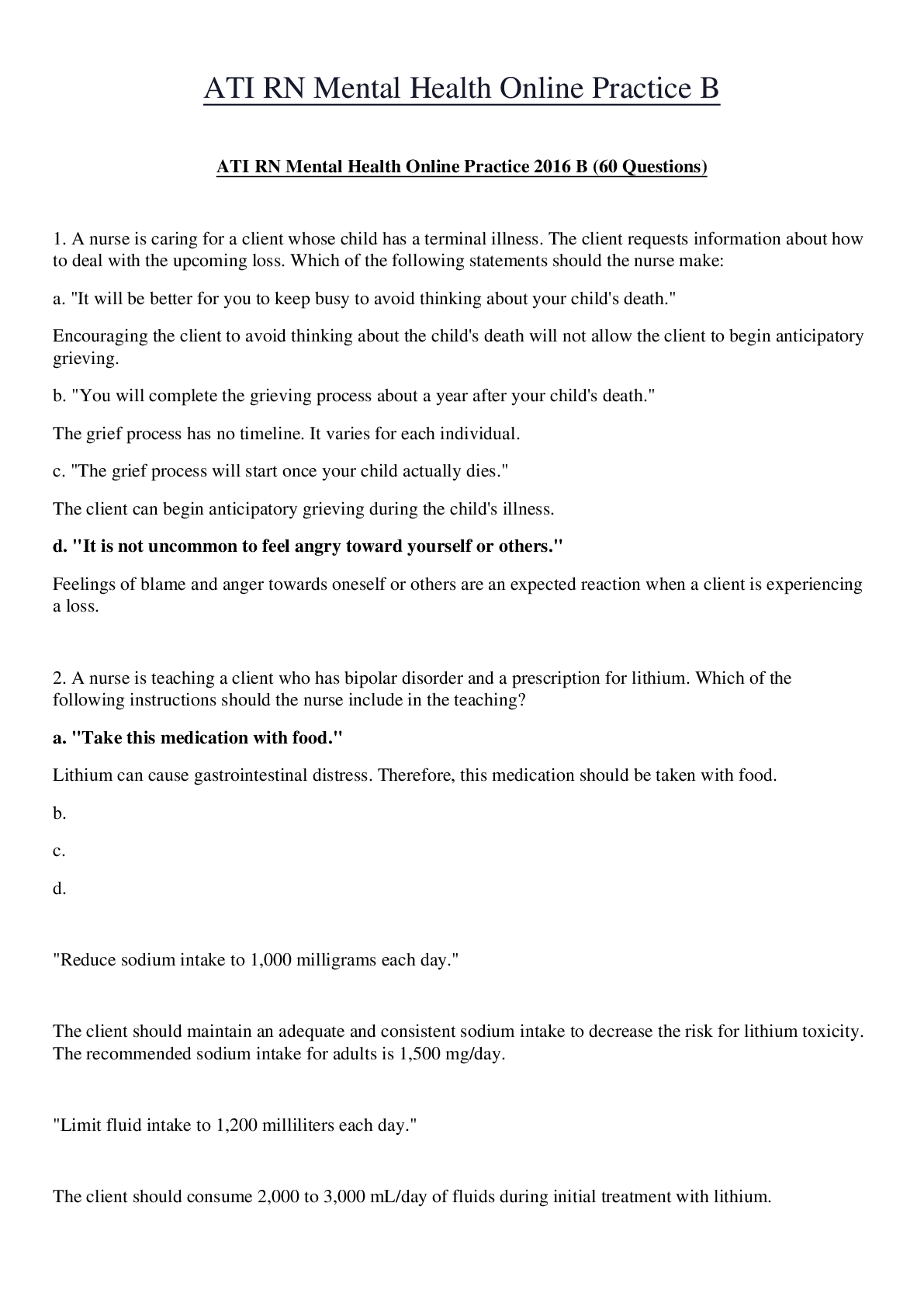
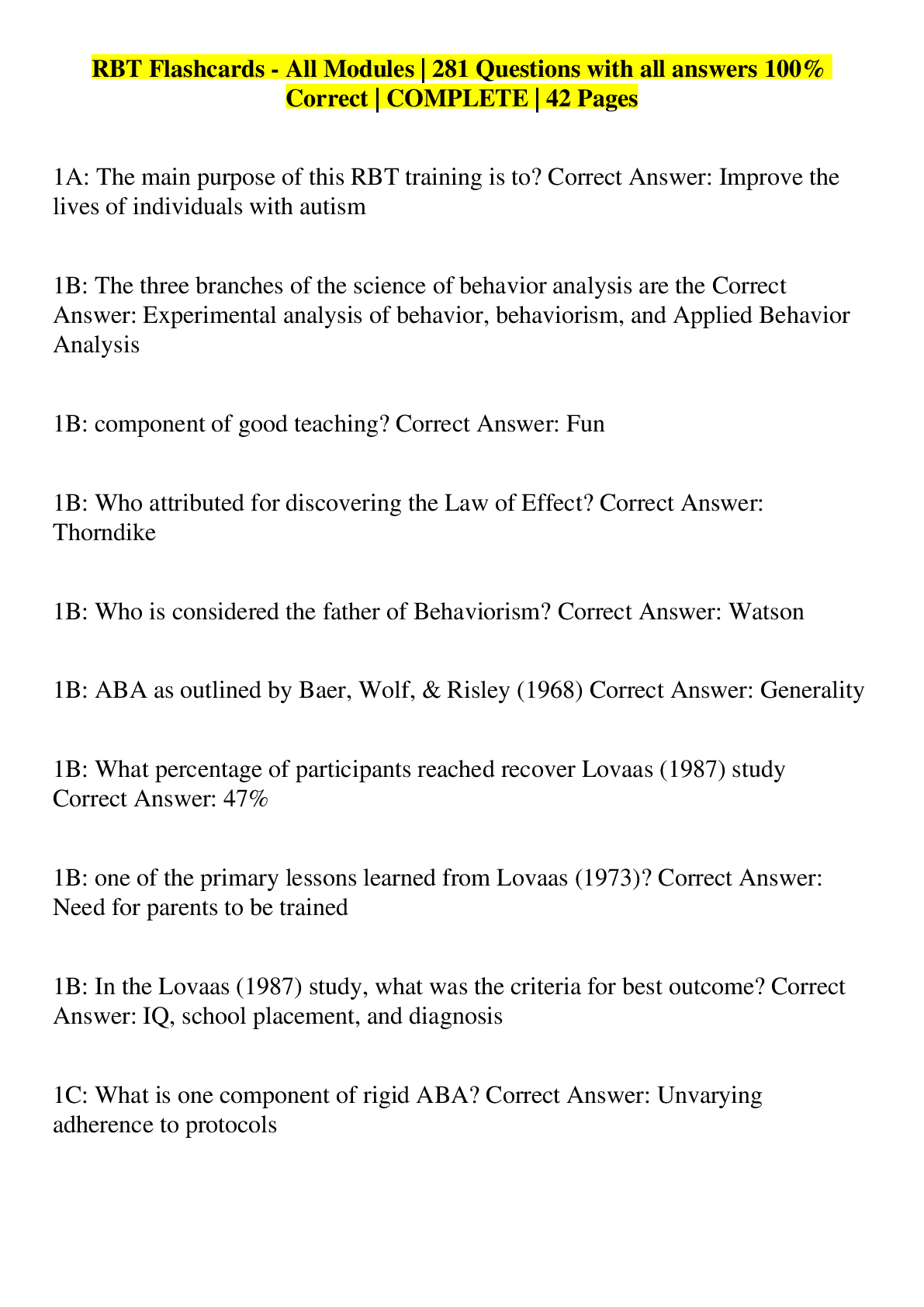
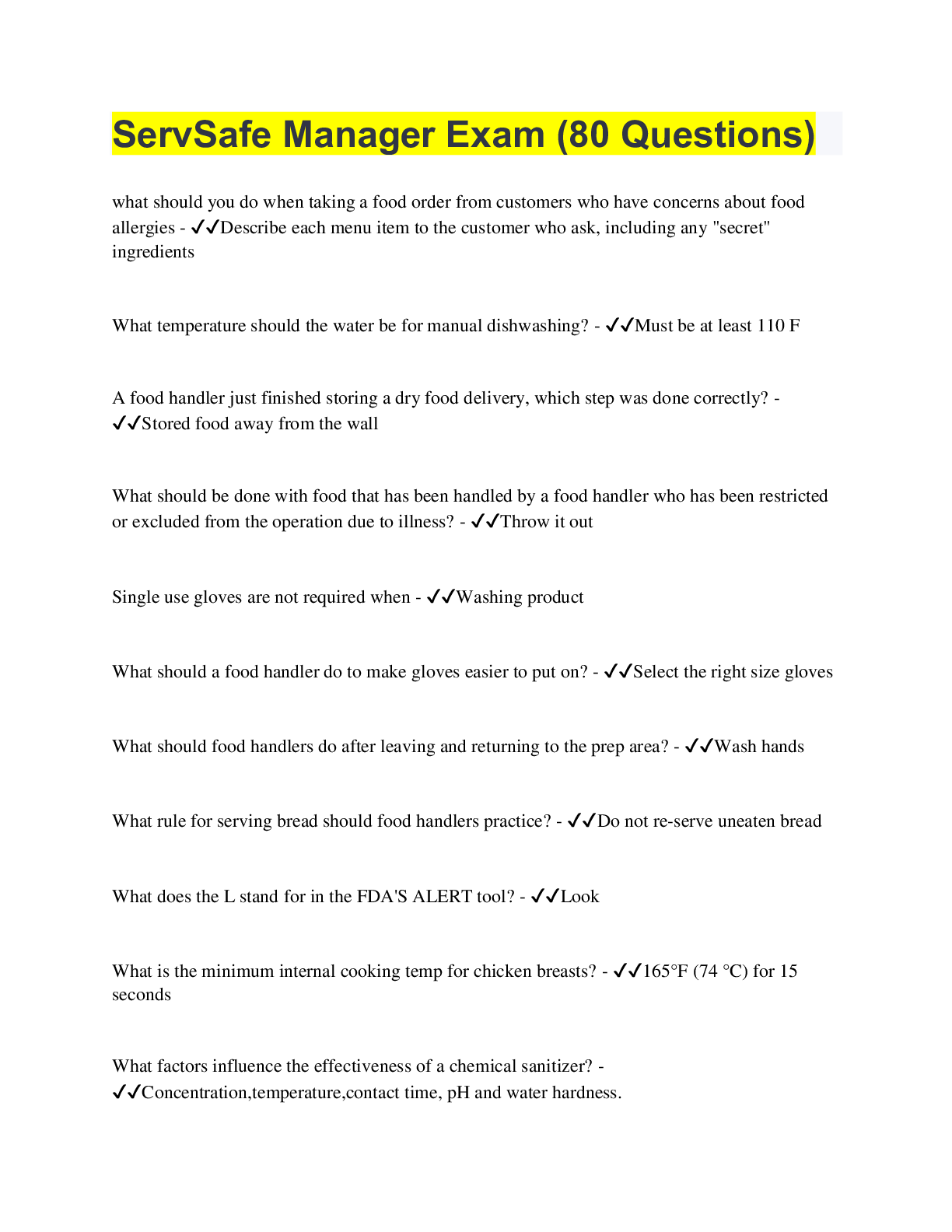
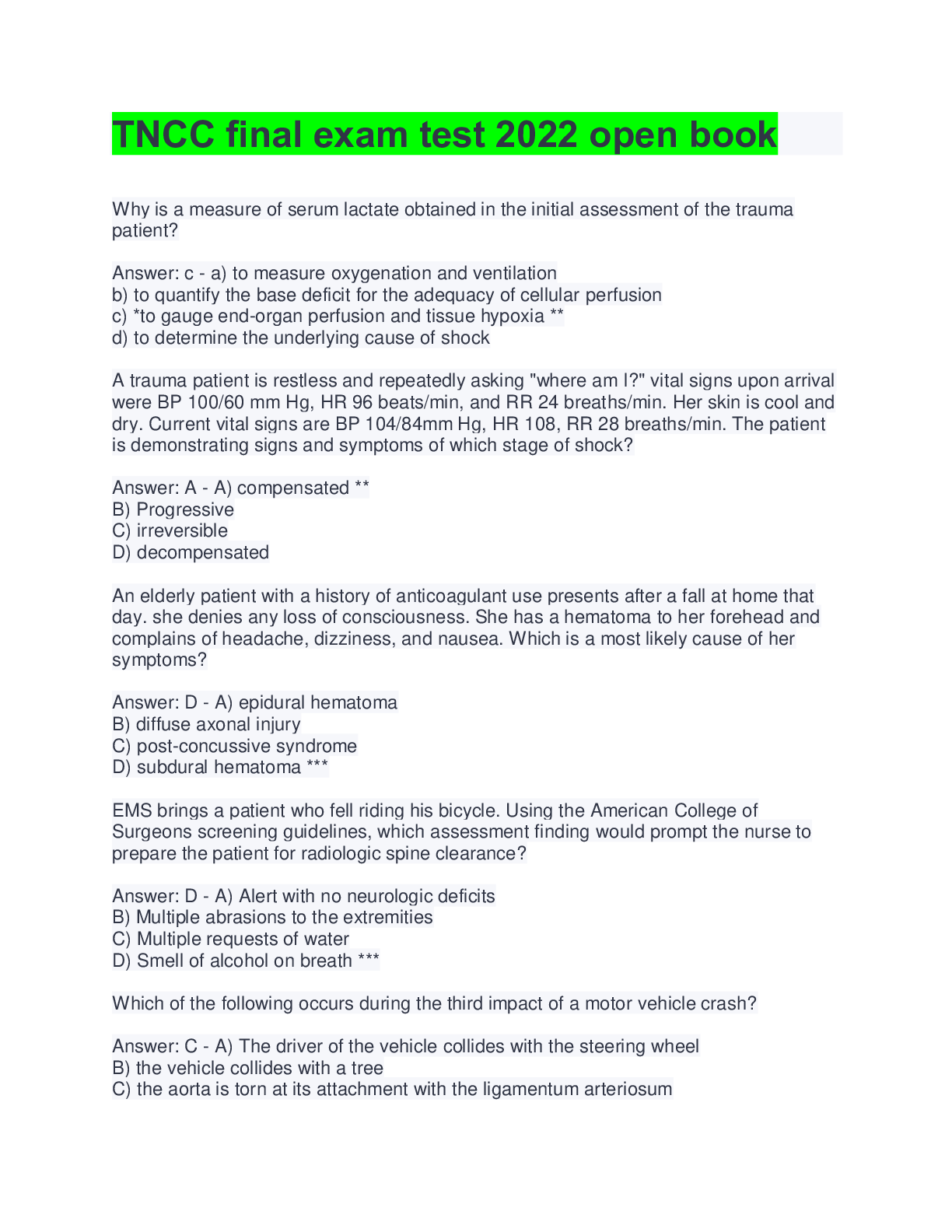
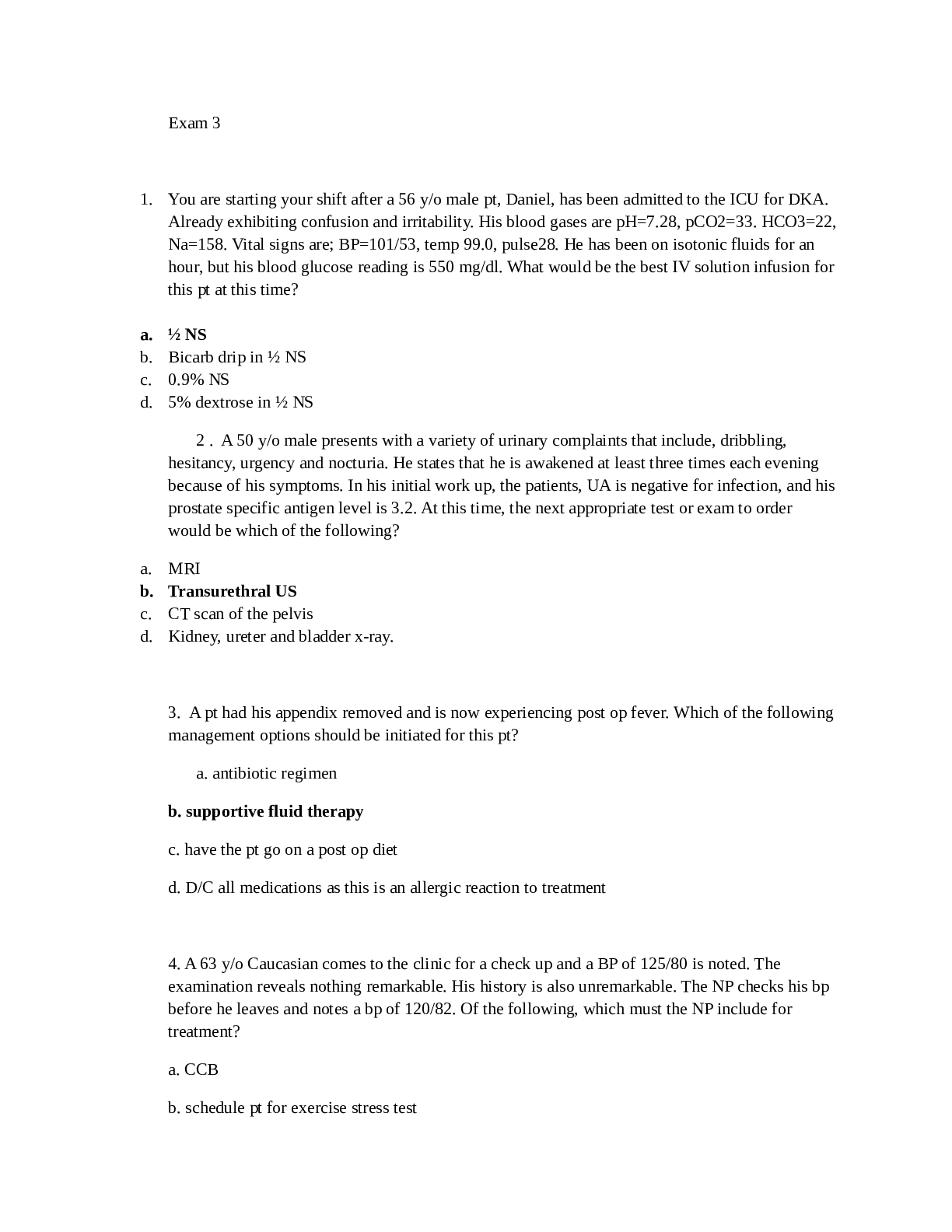
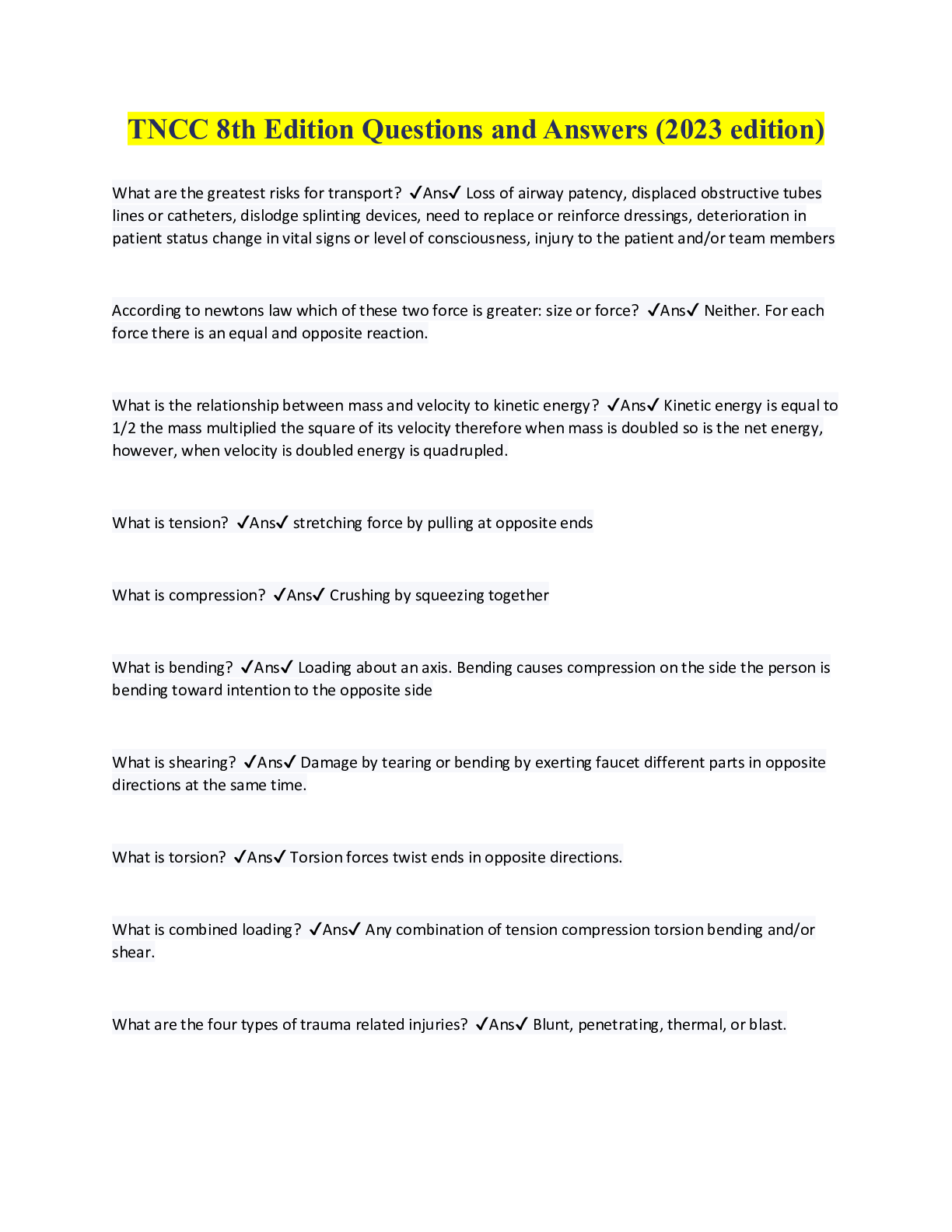
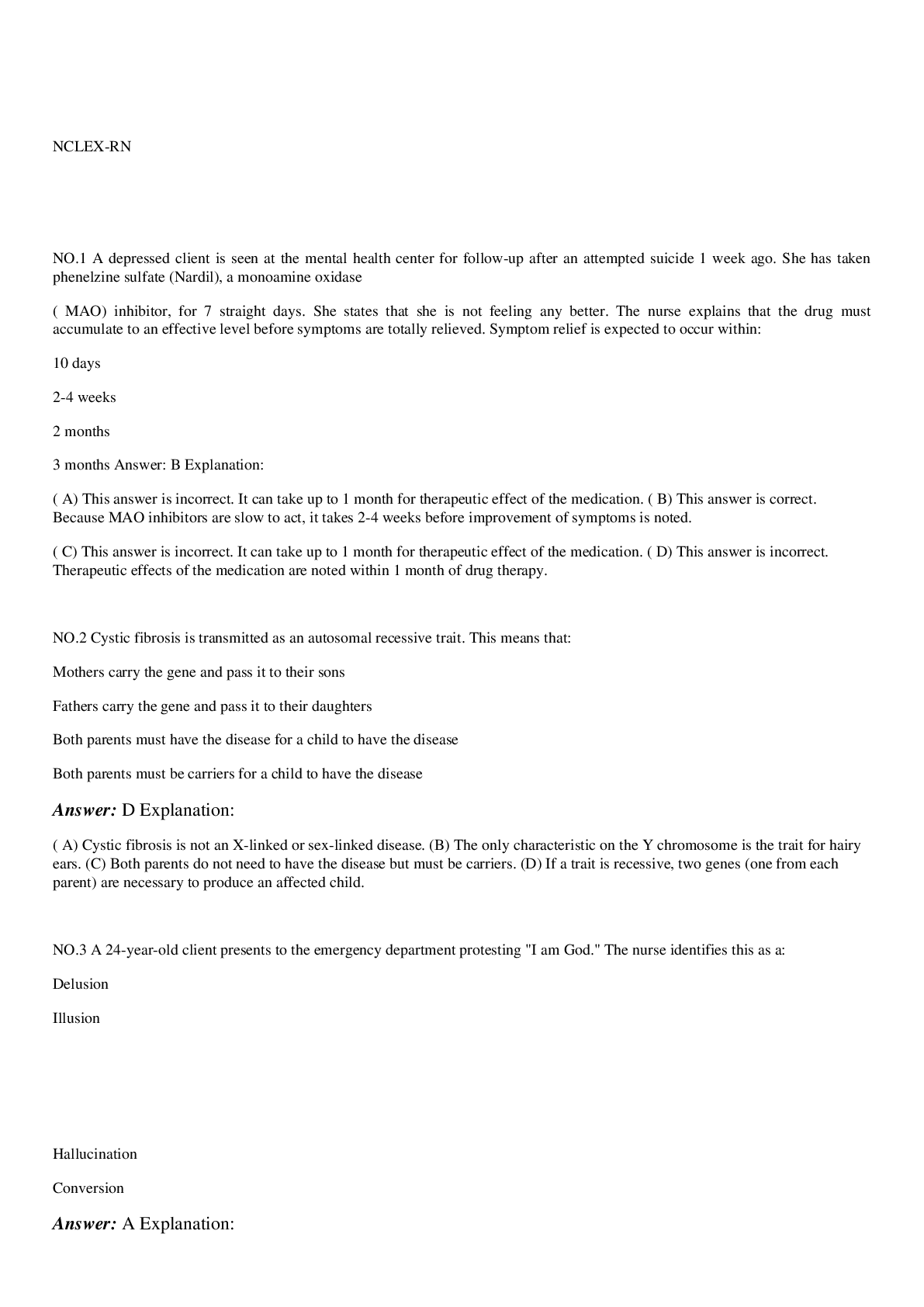
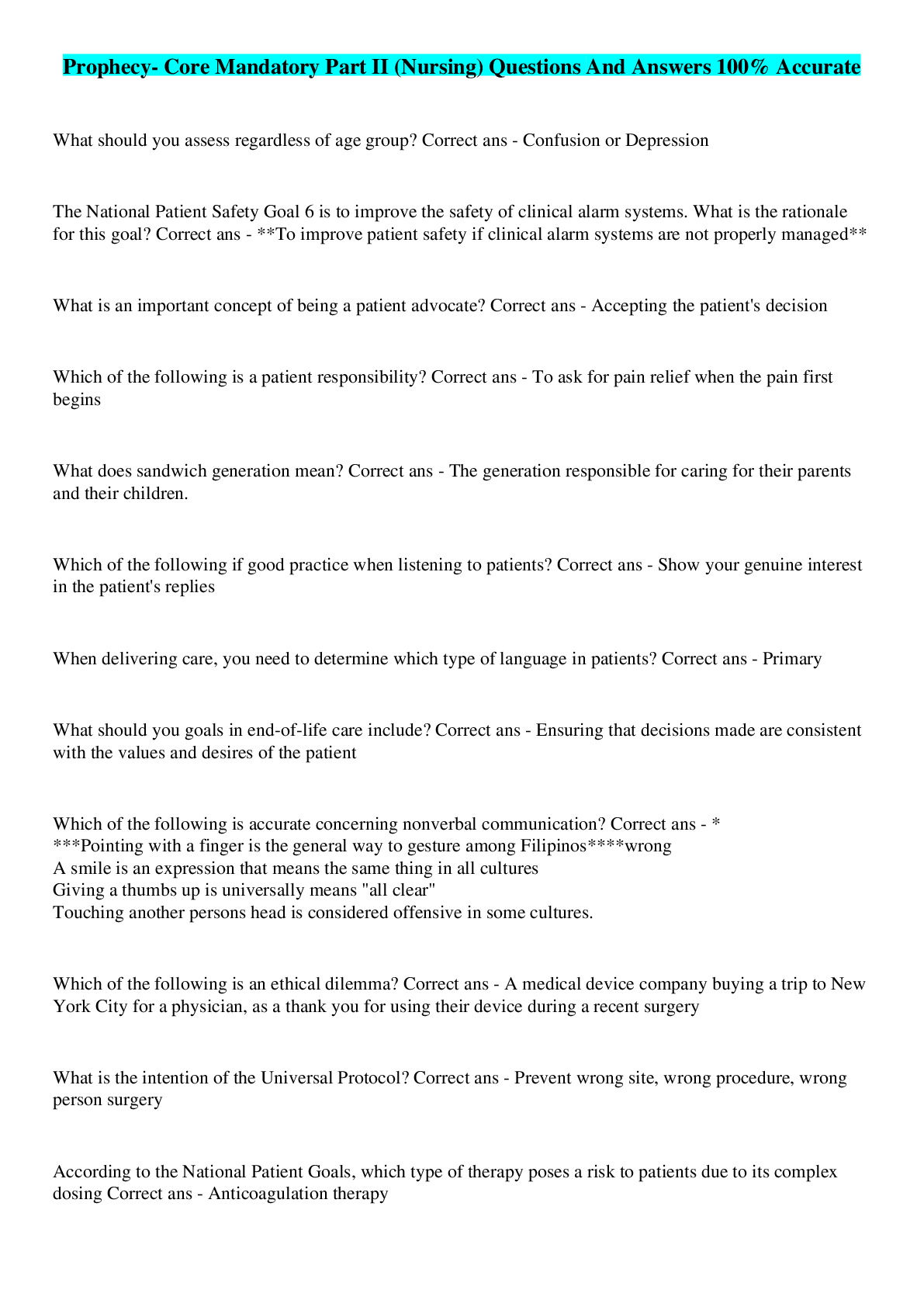
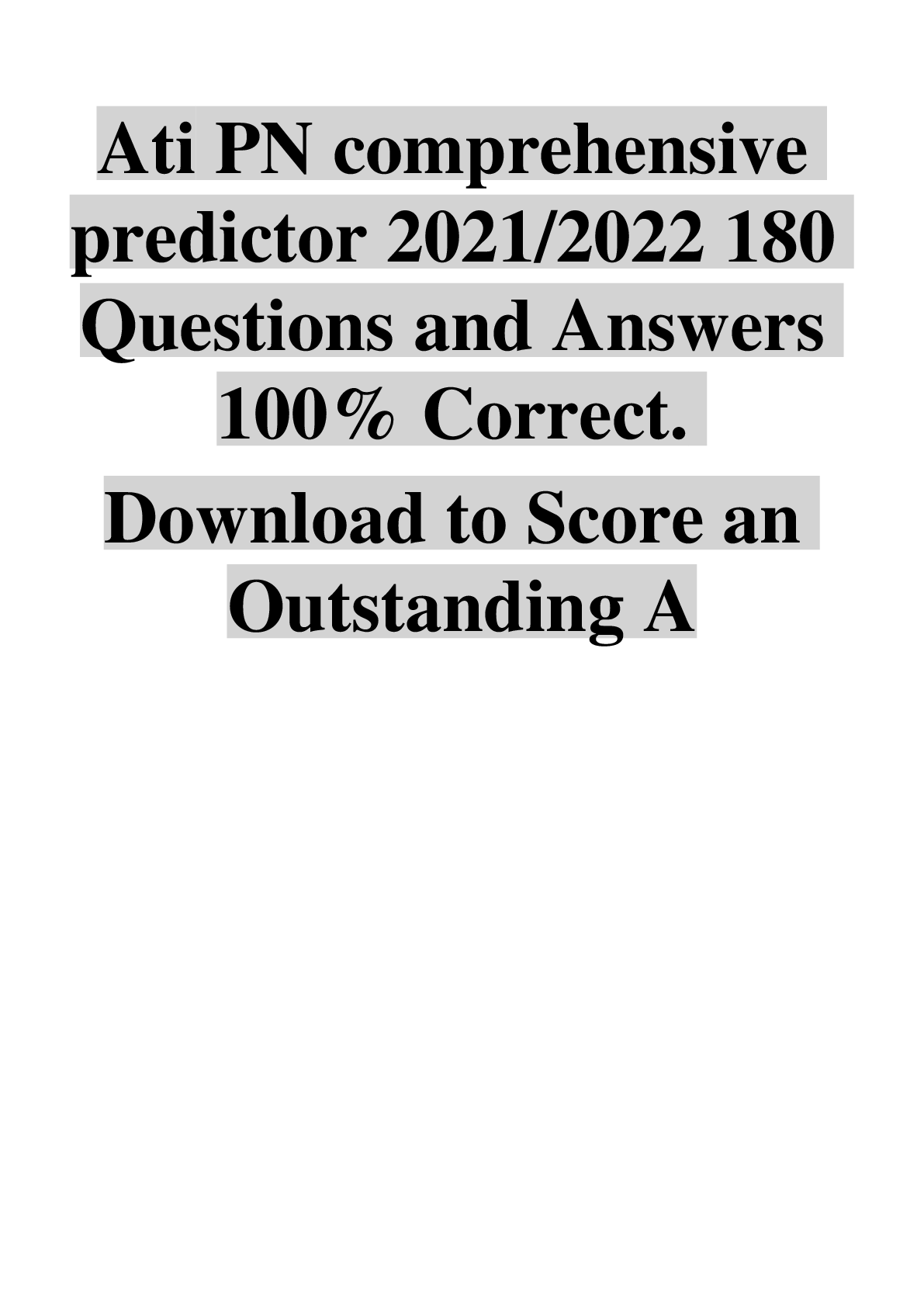
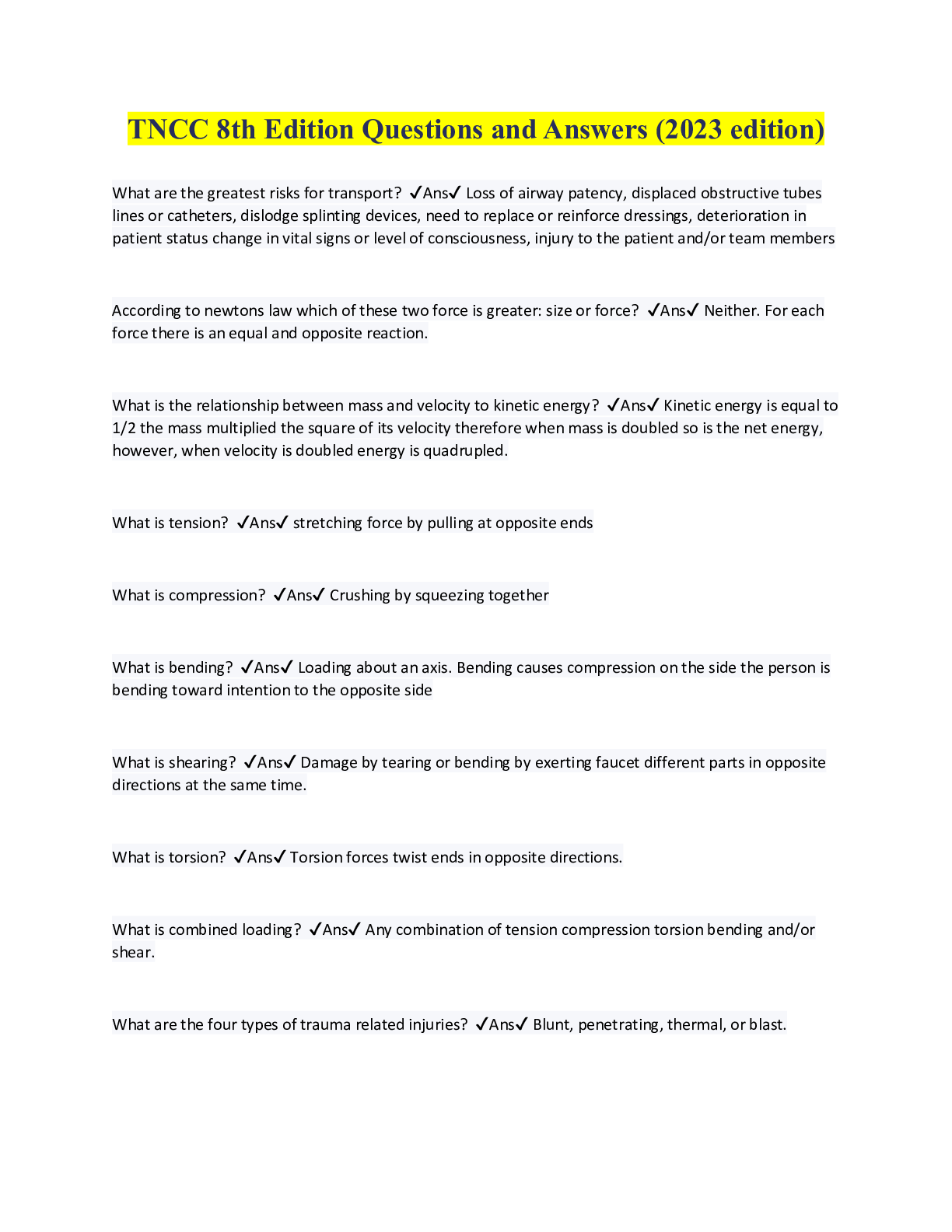
.png)
